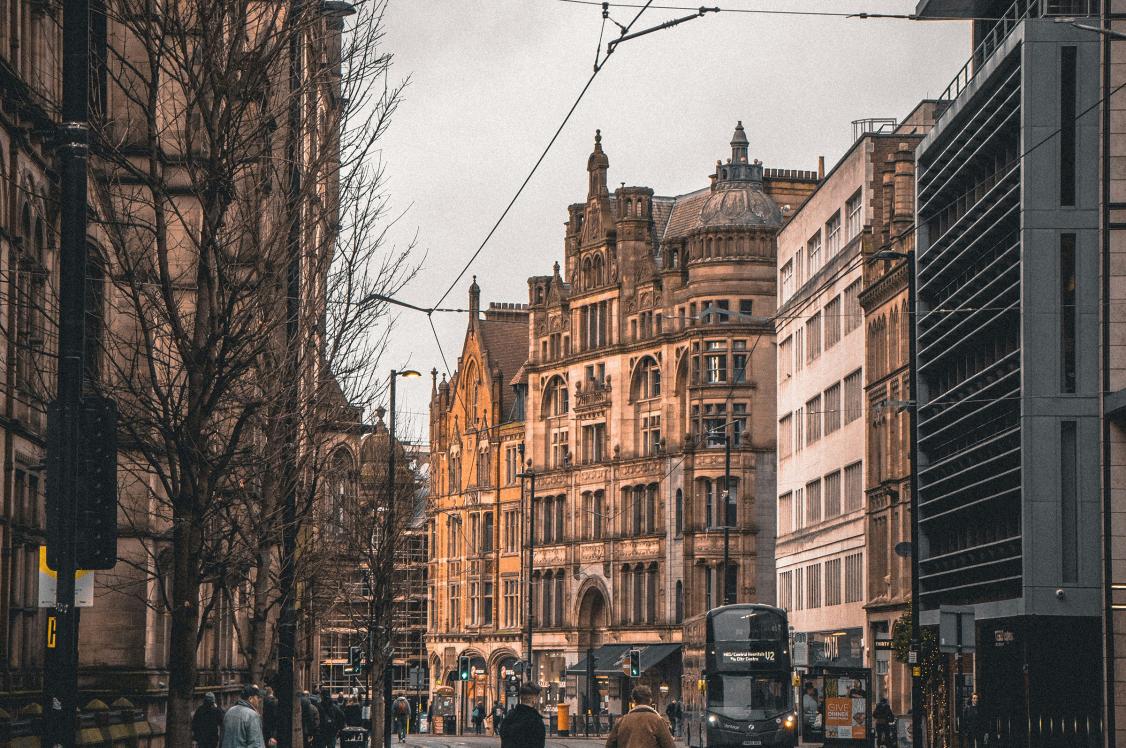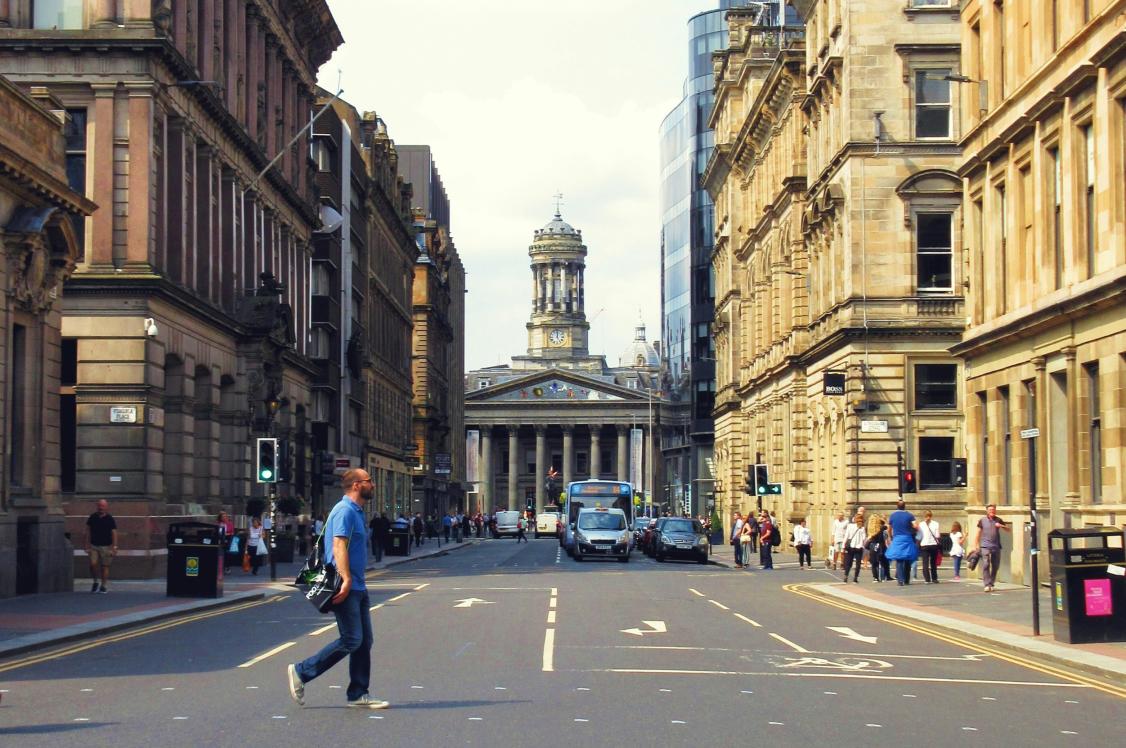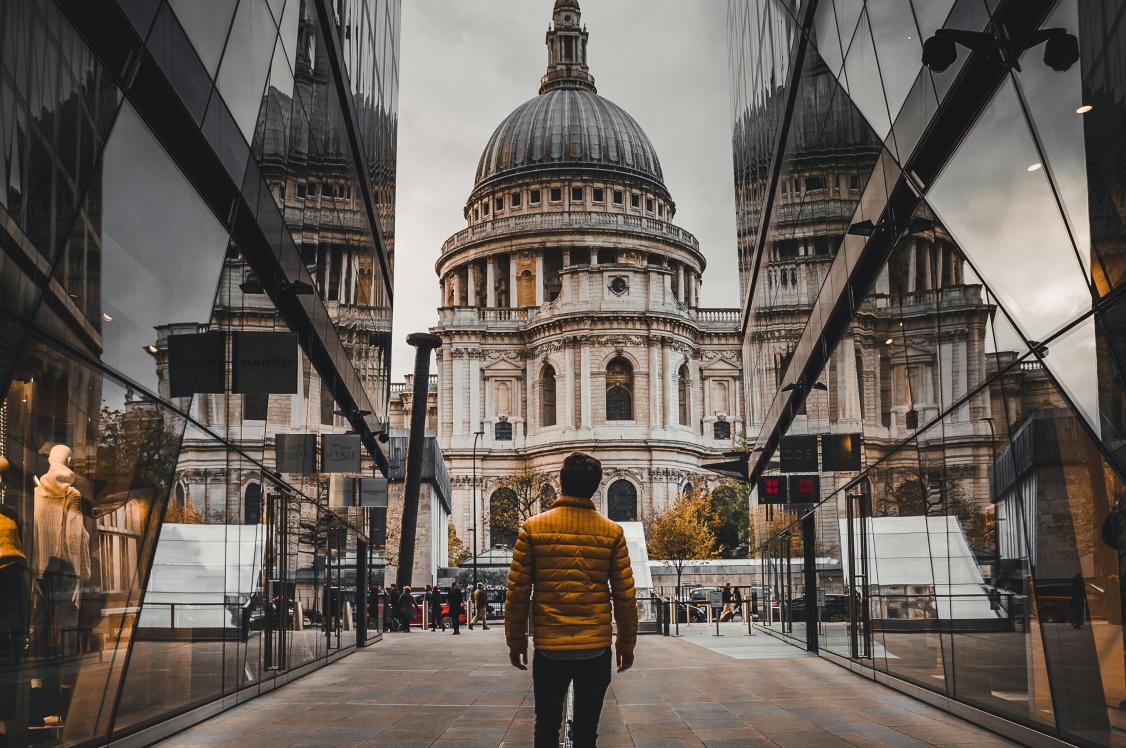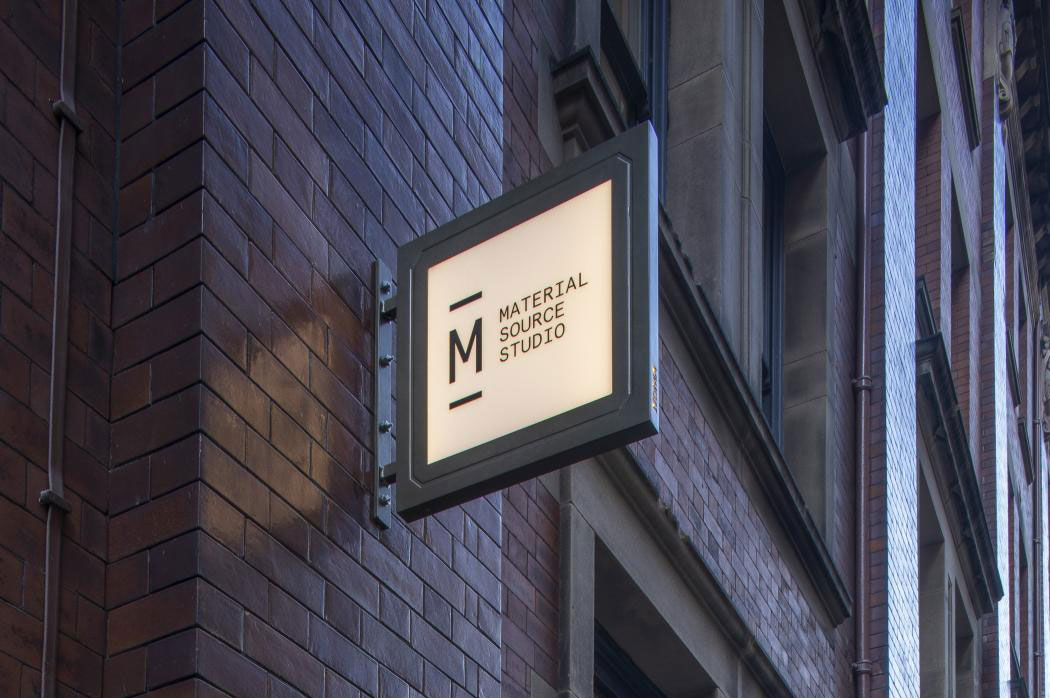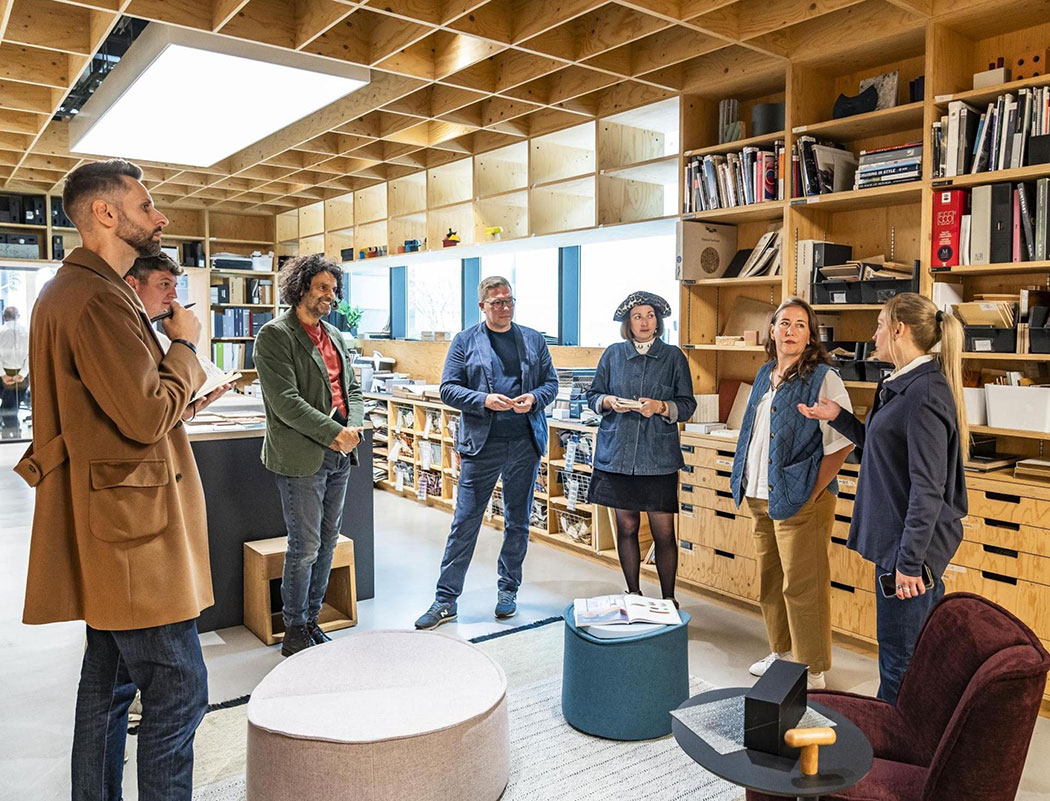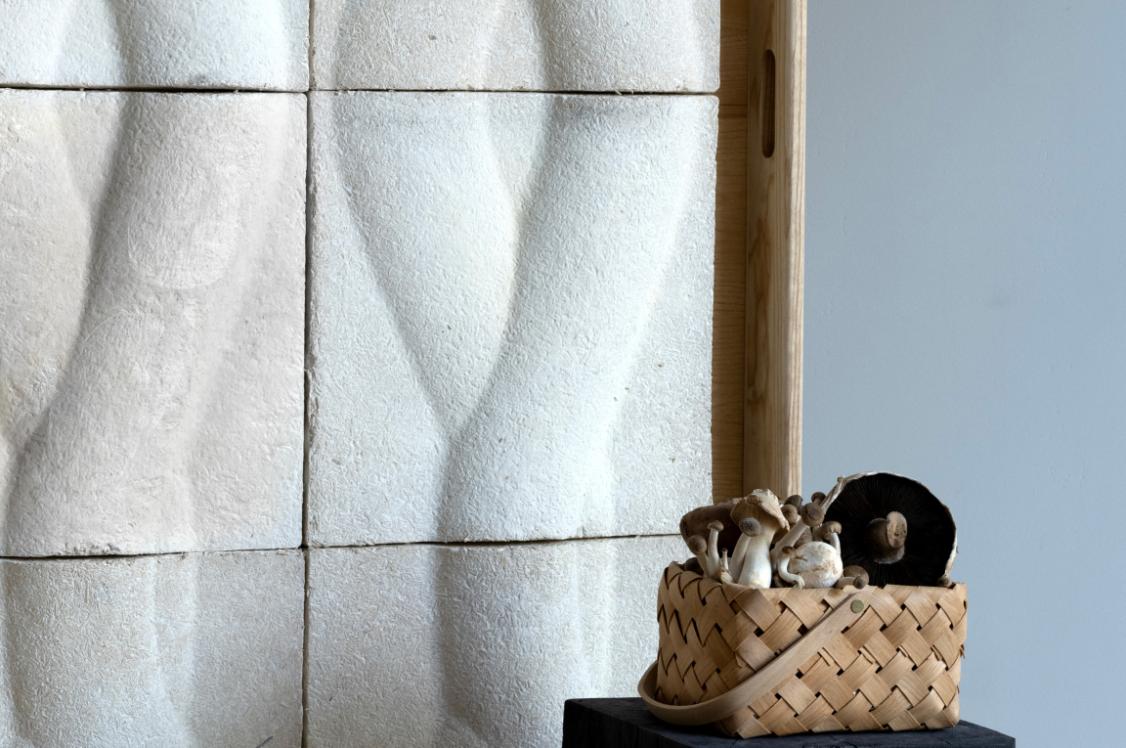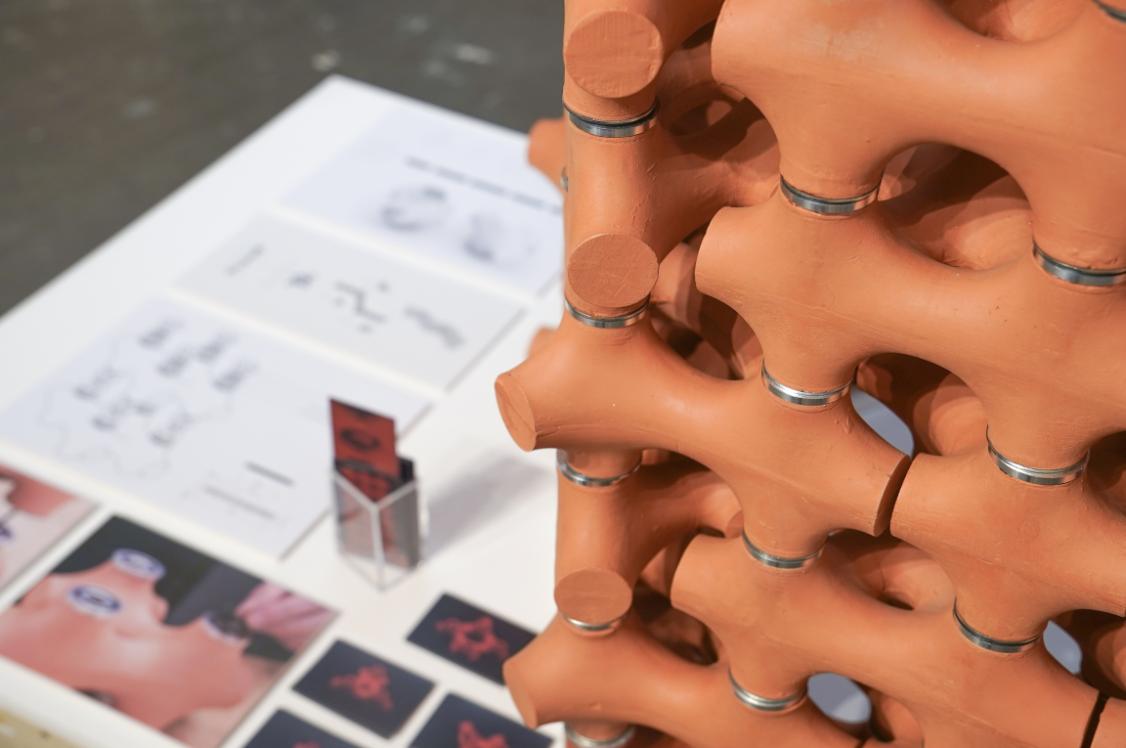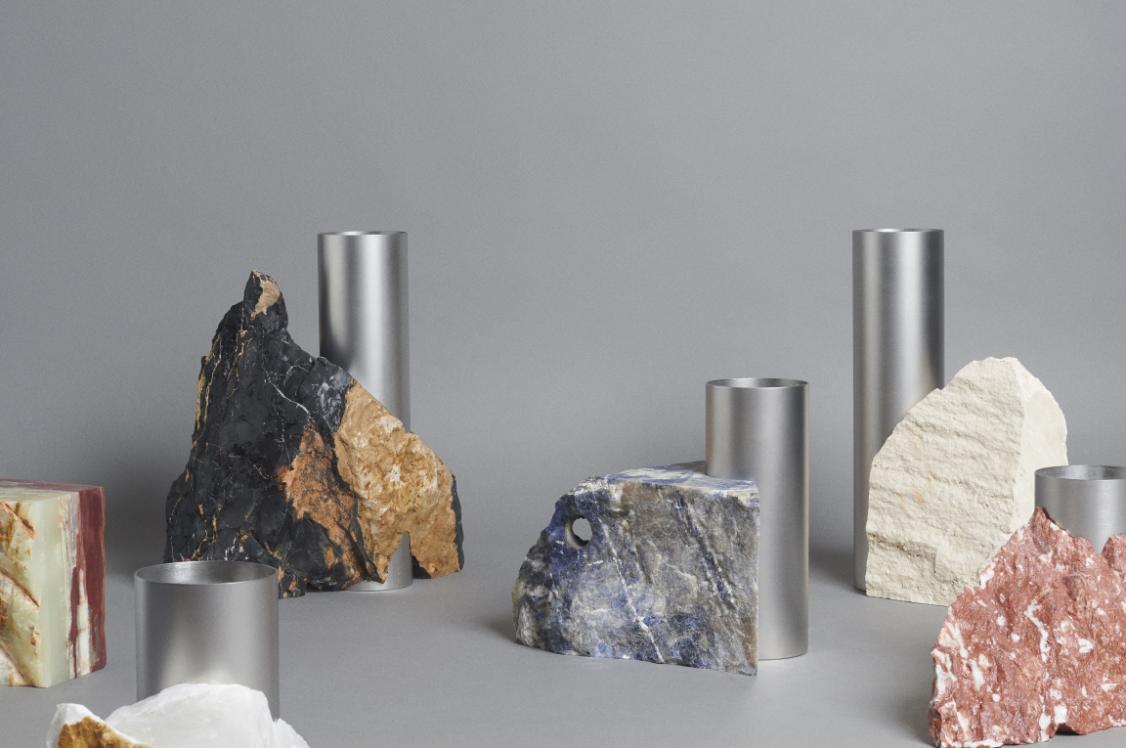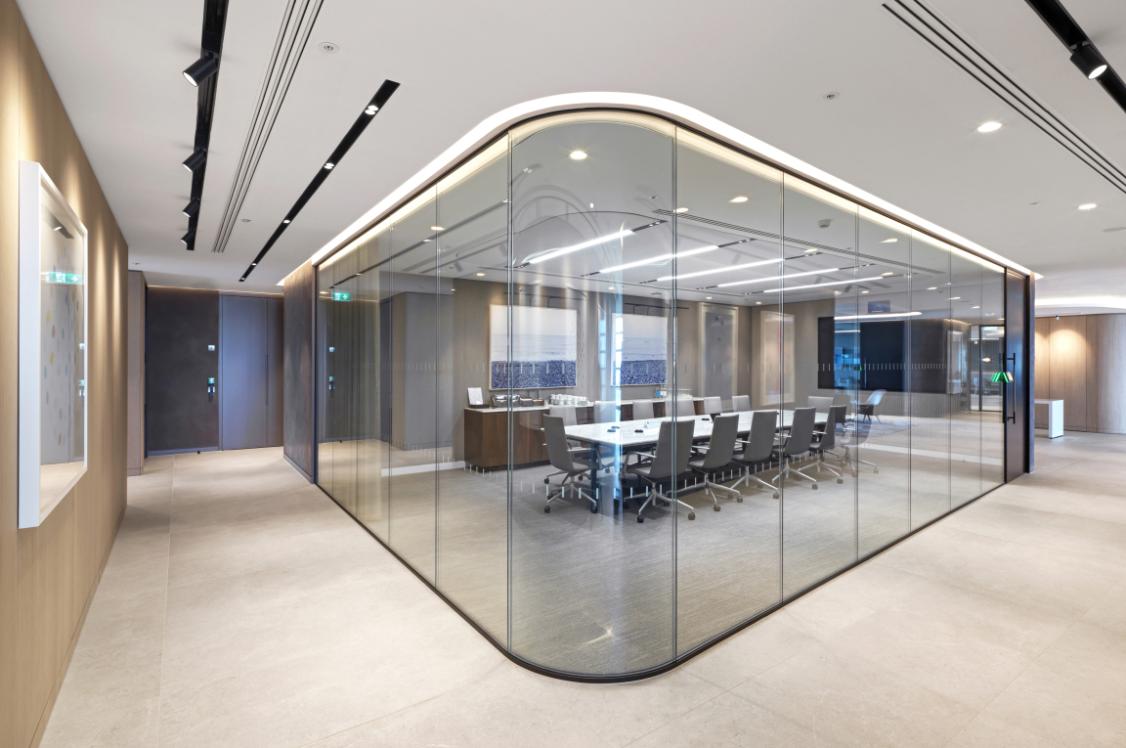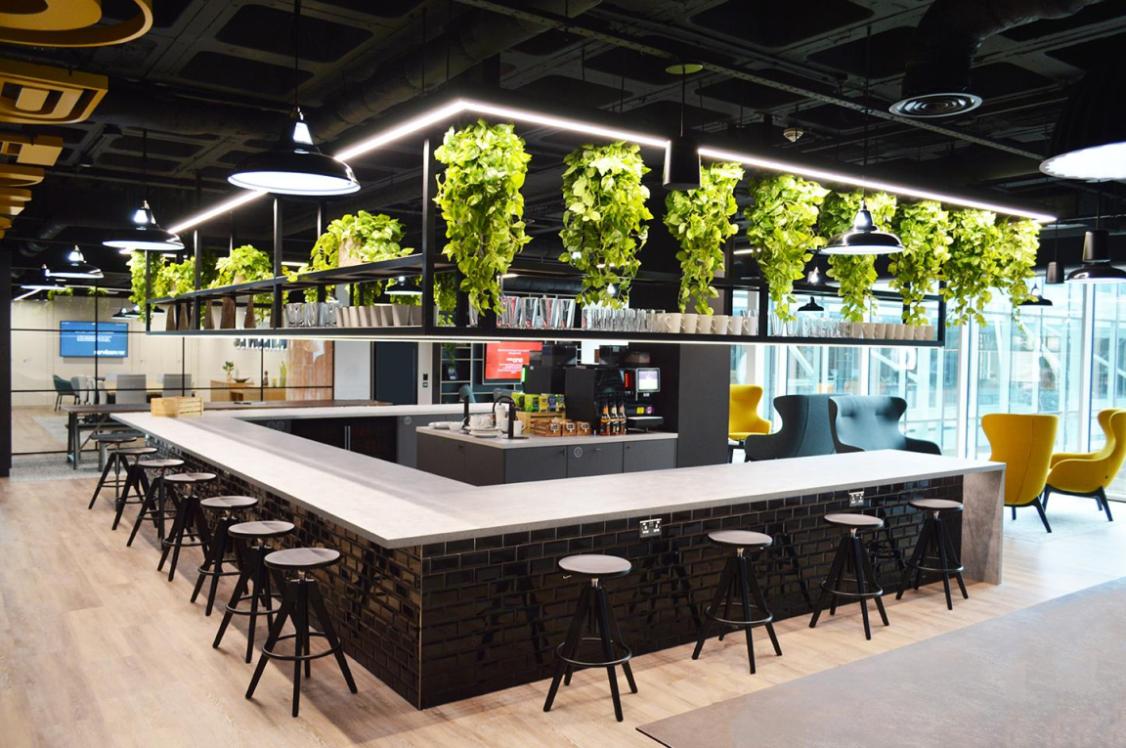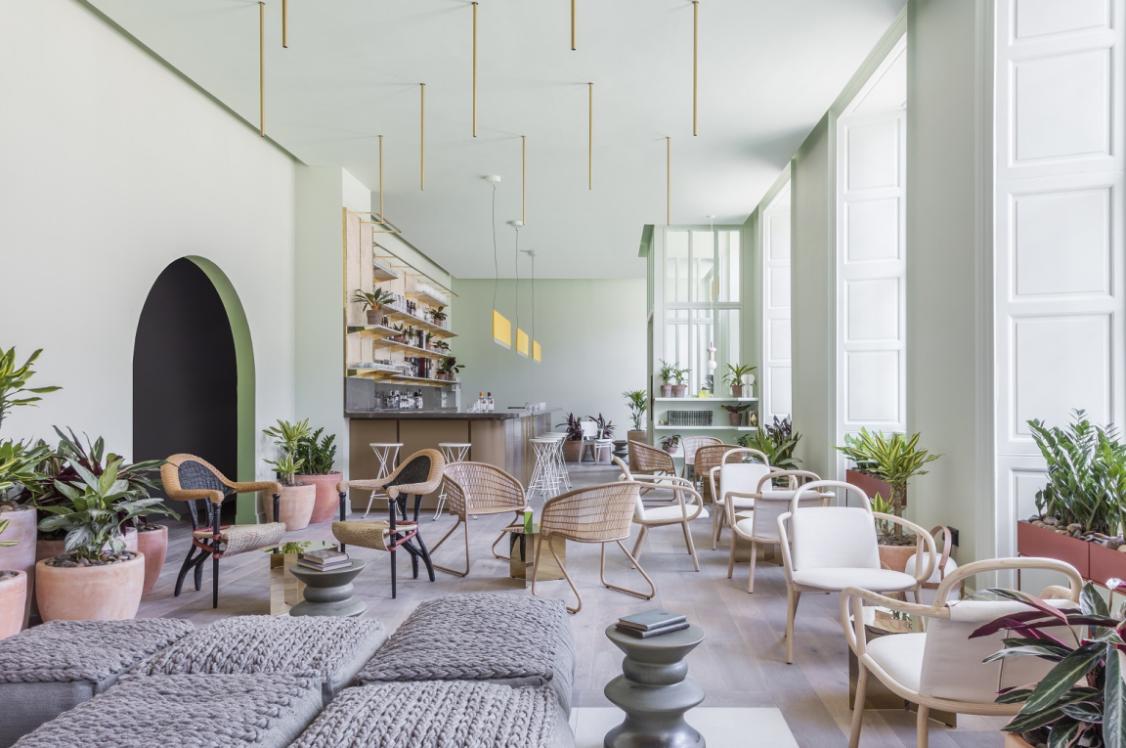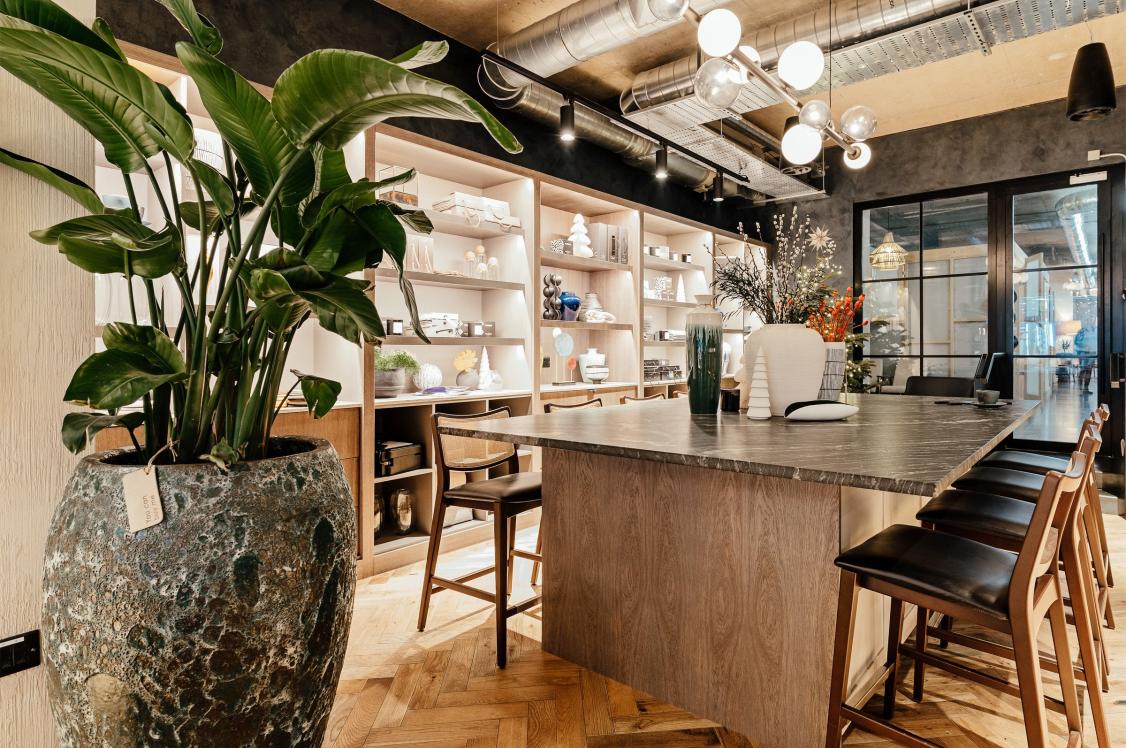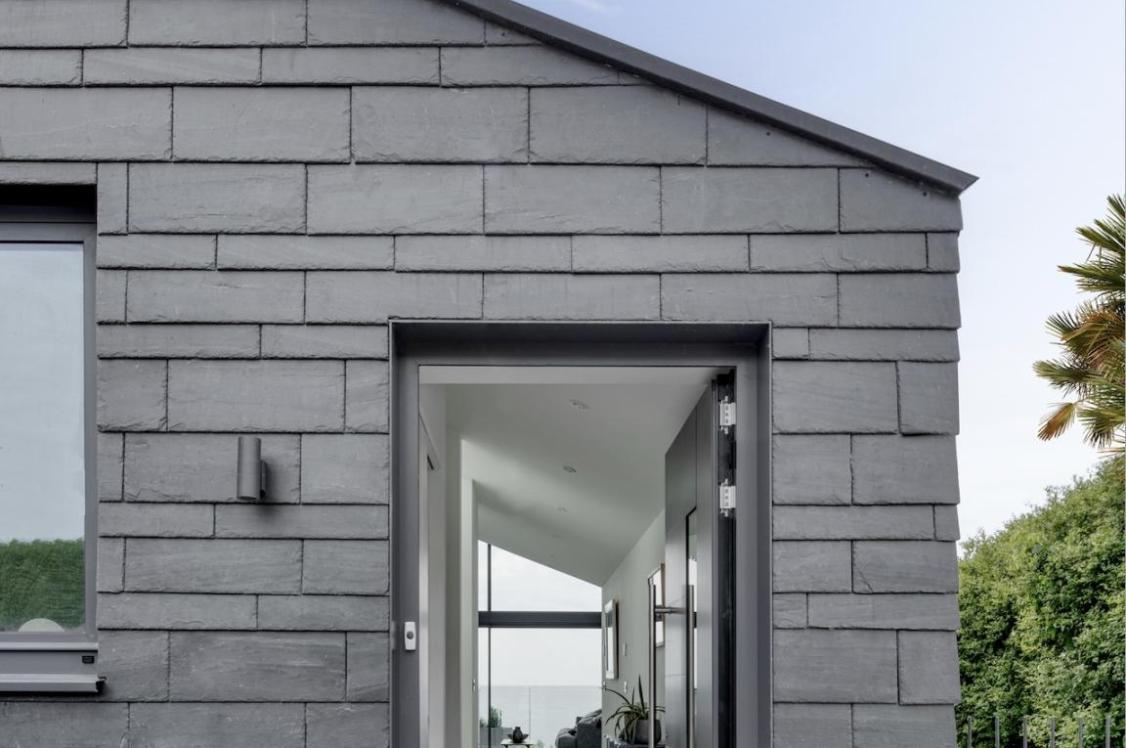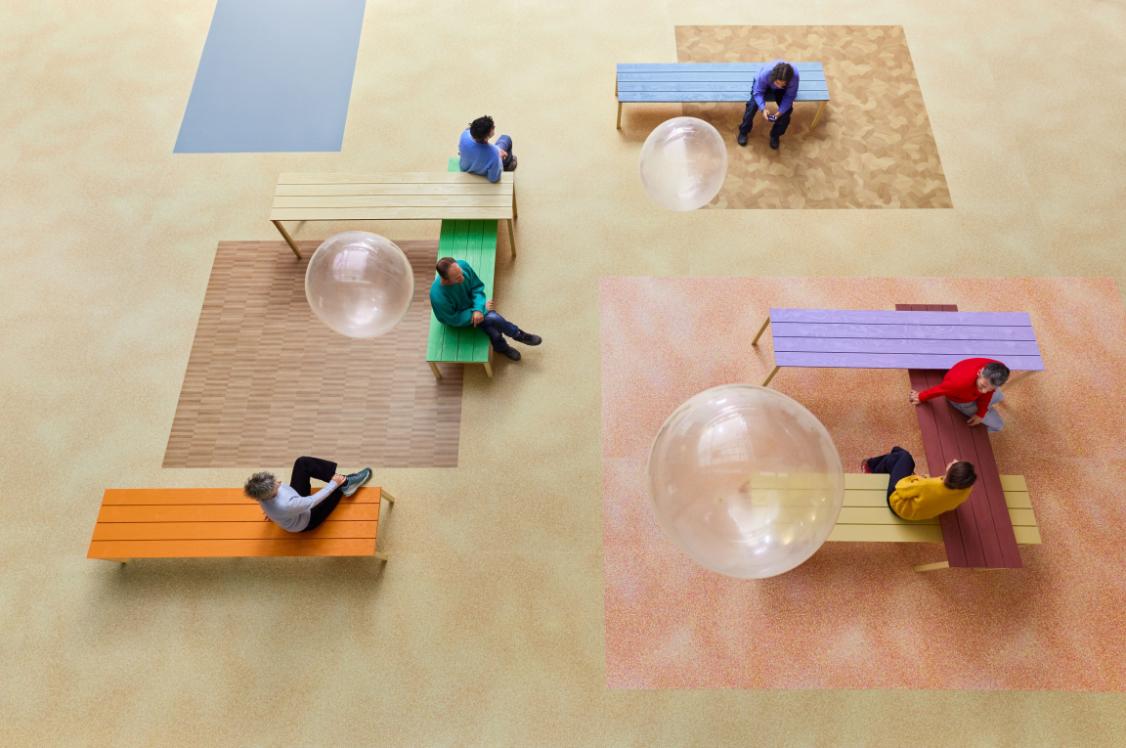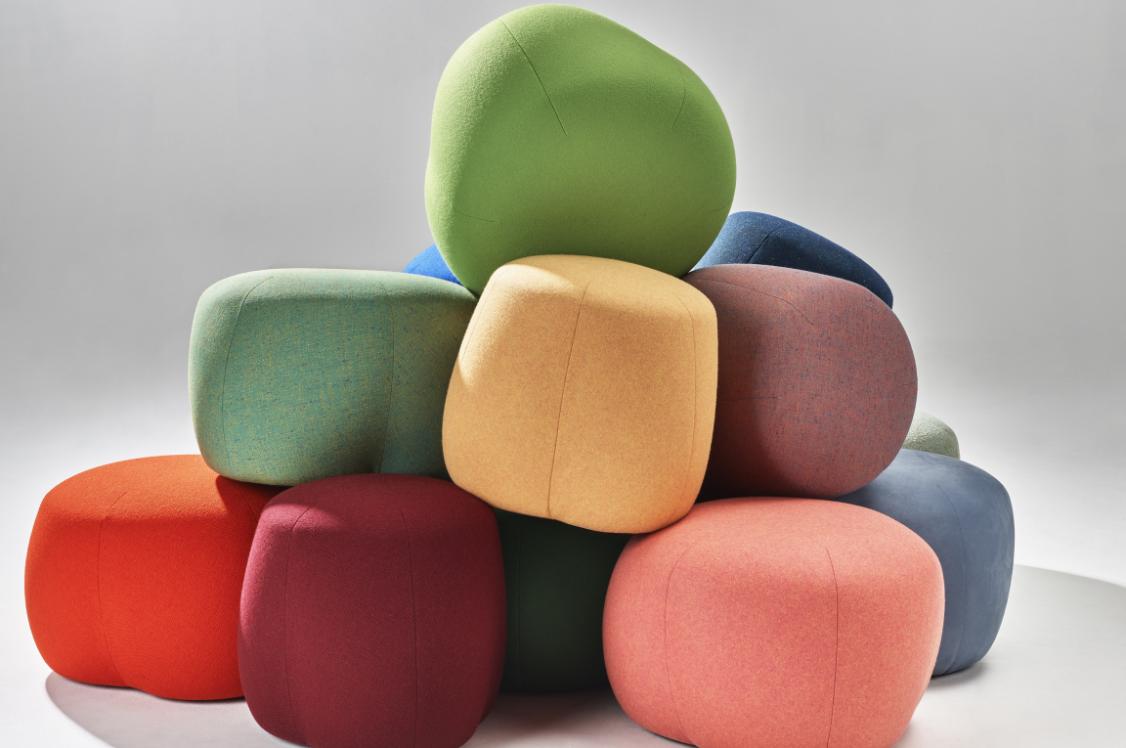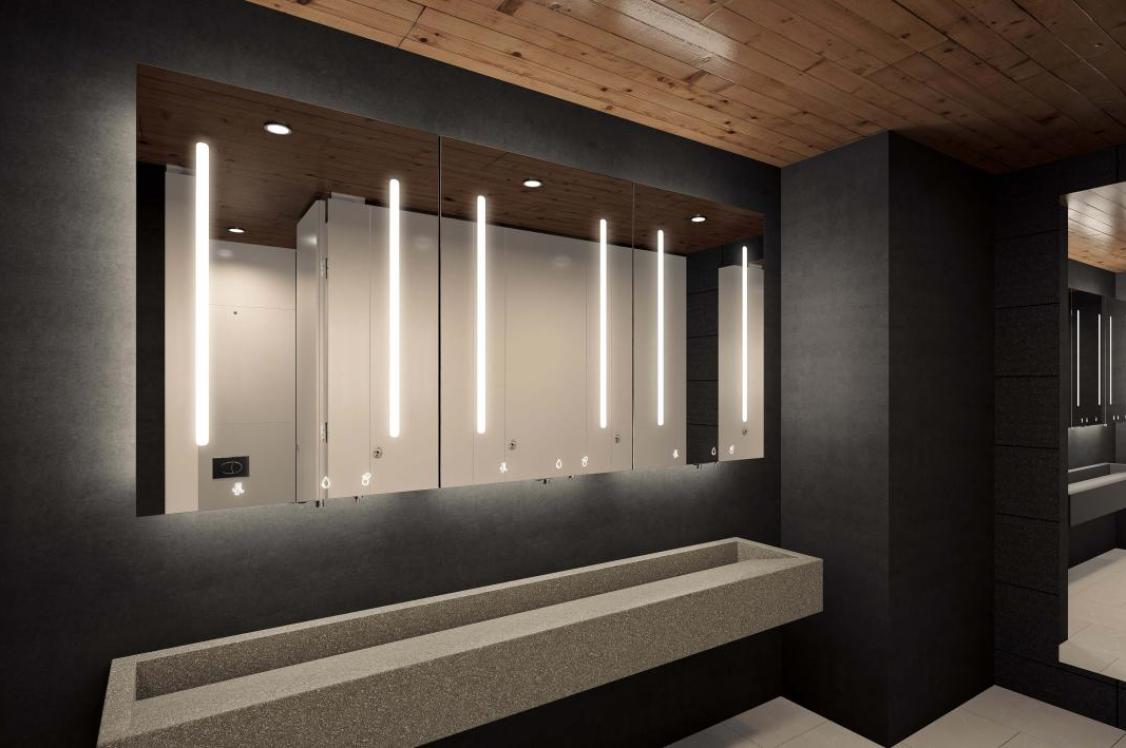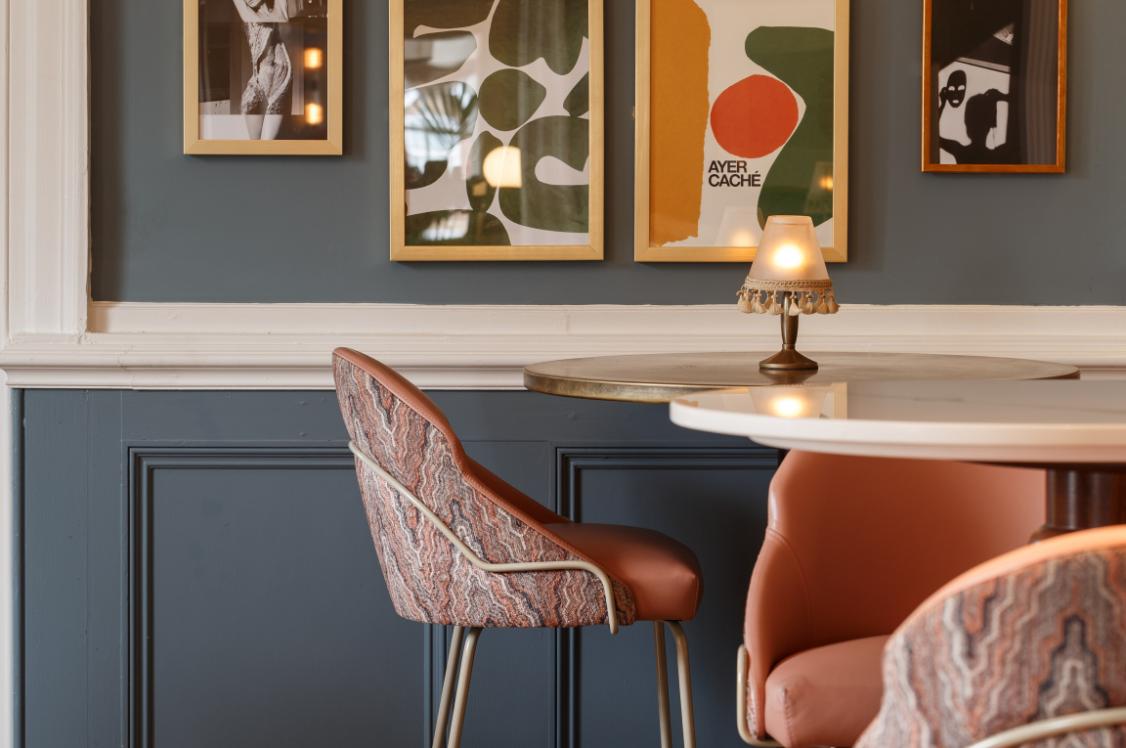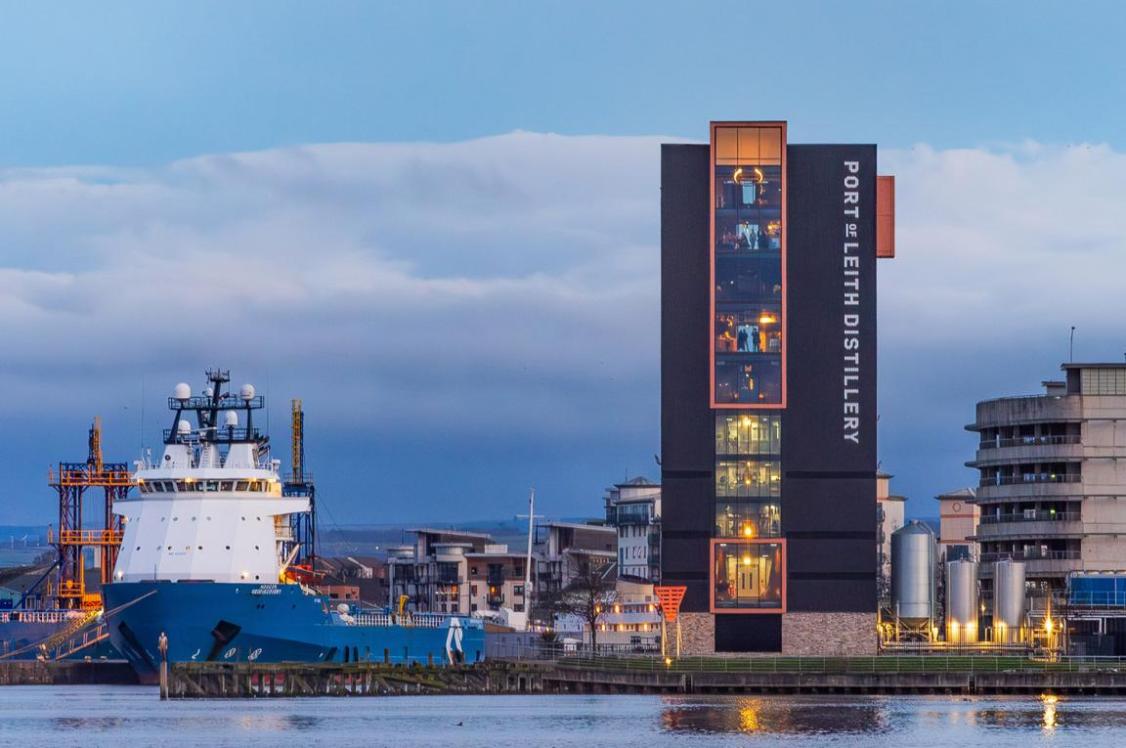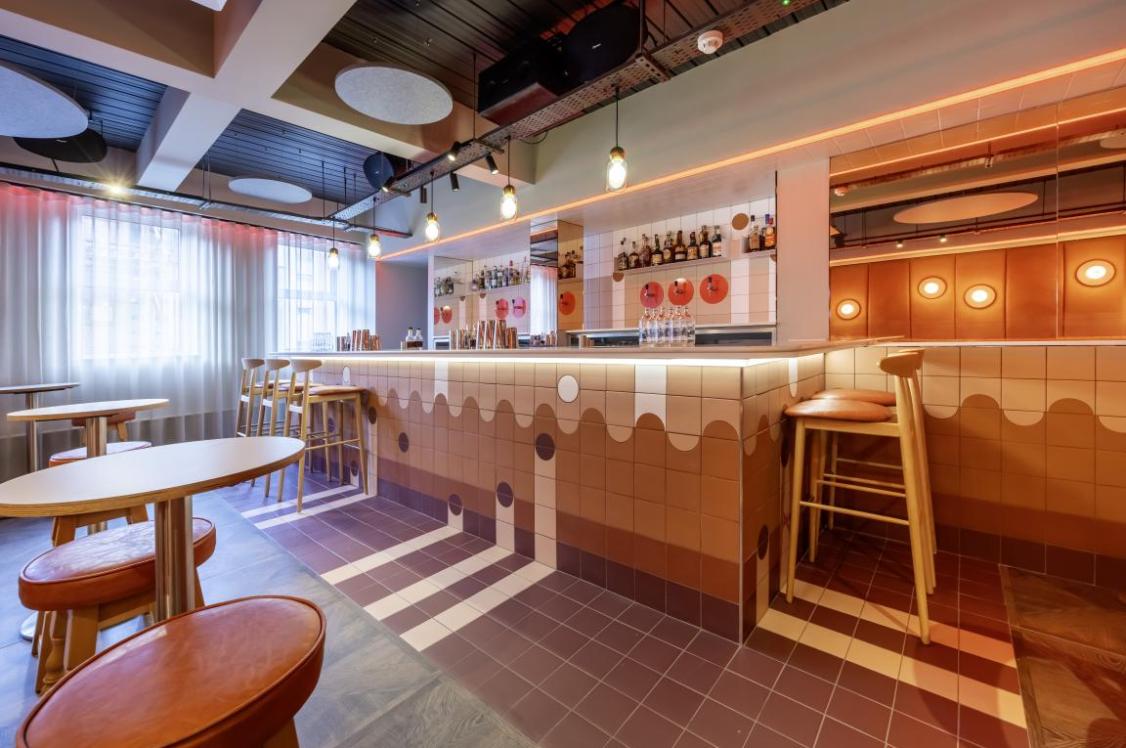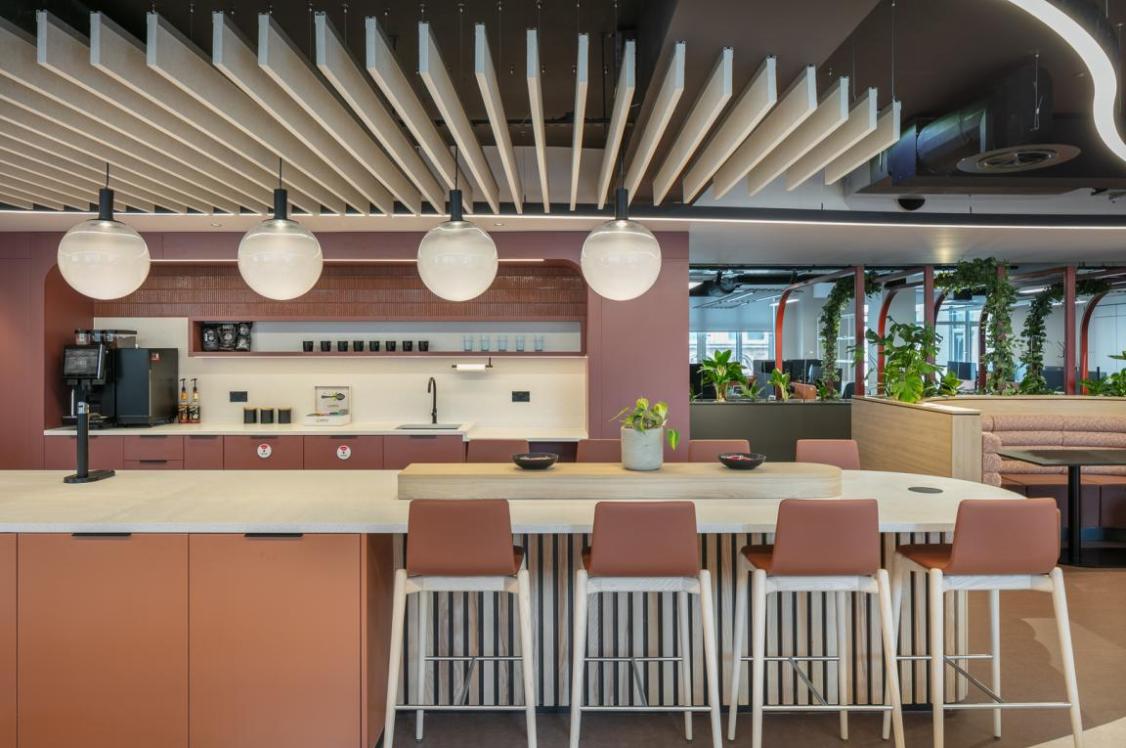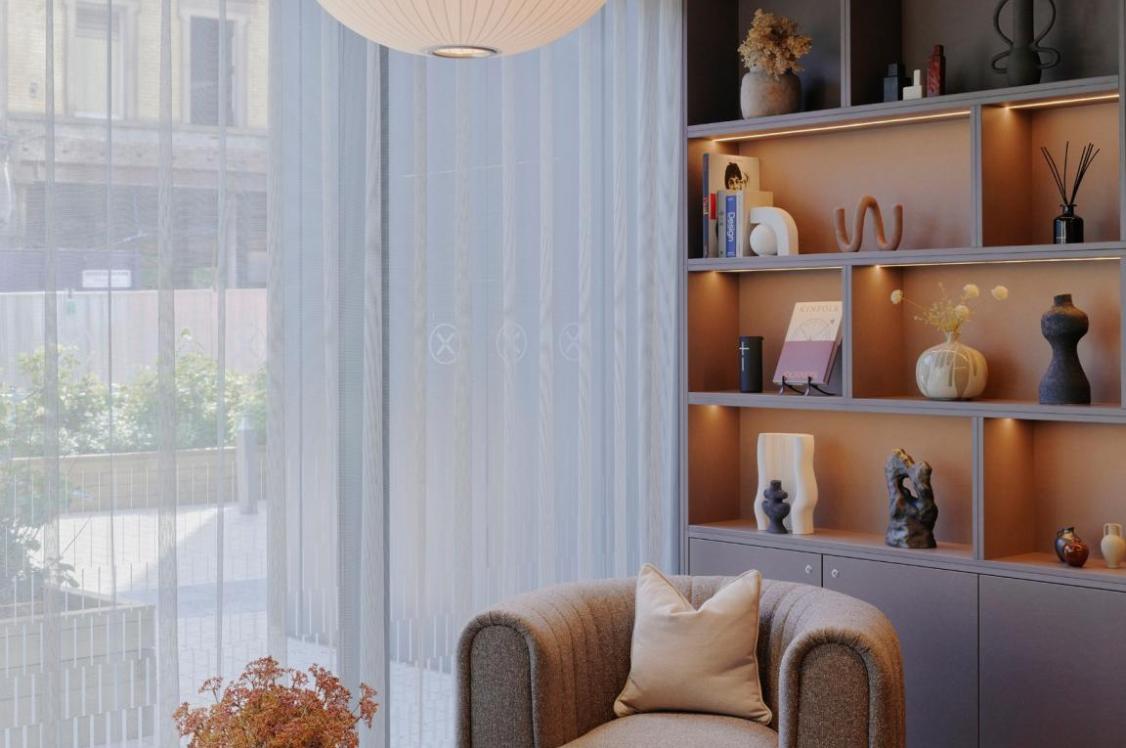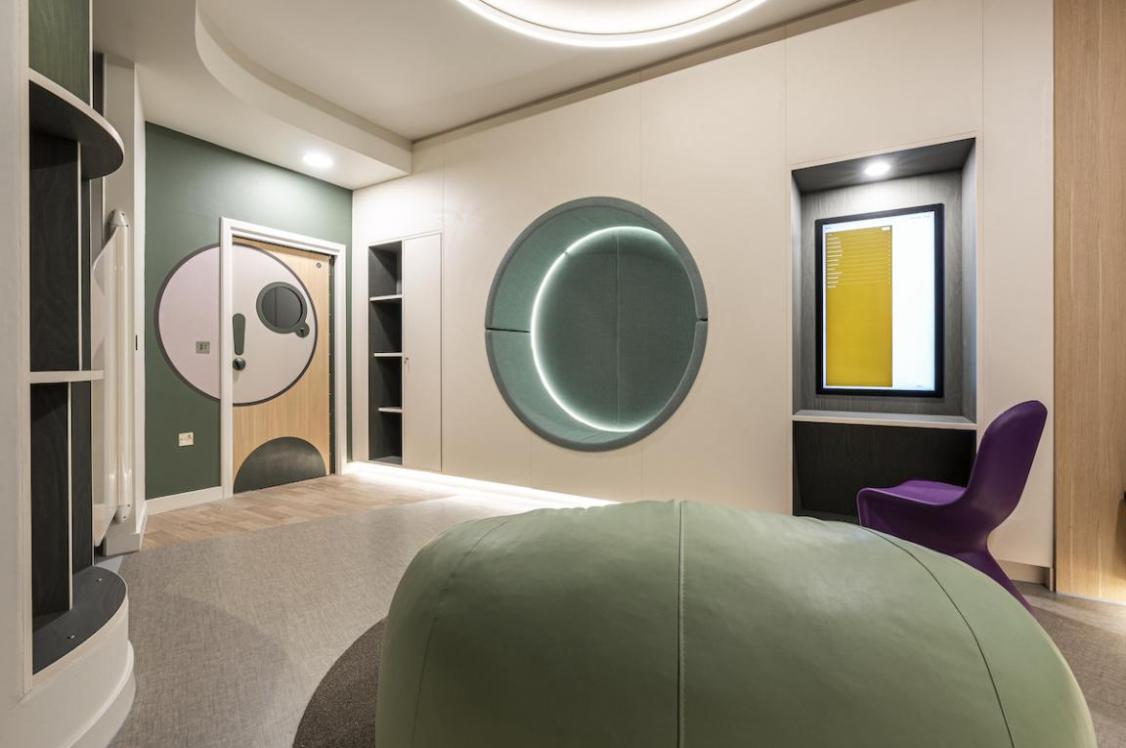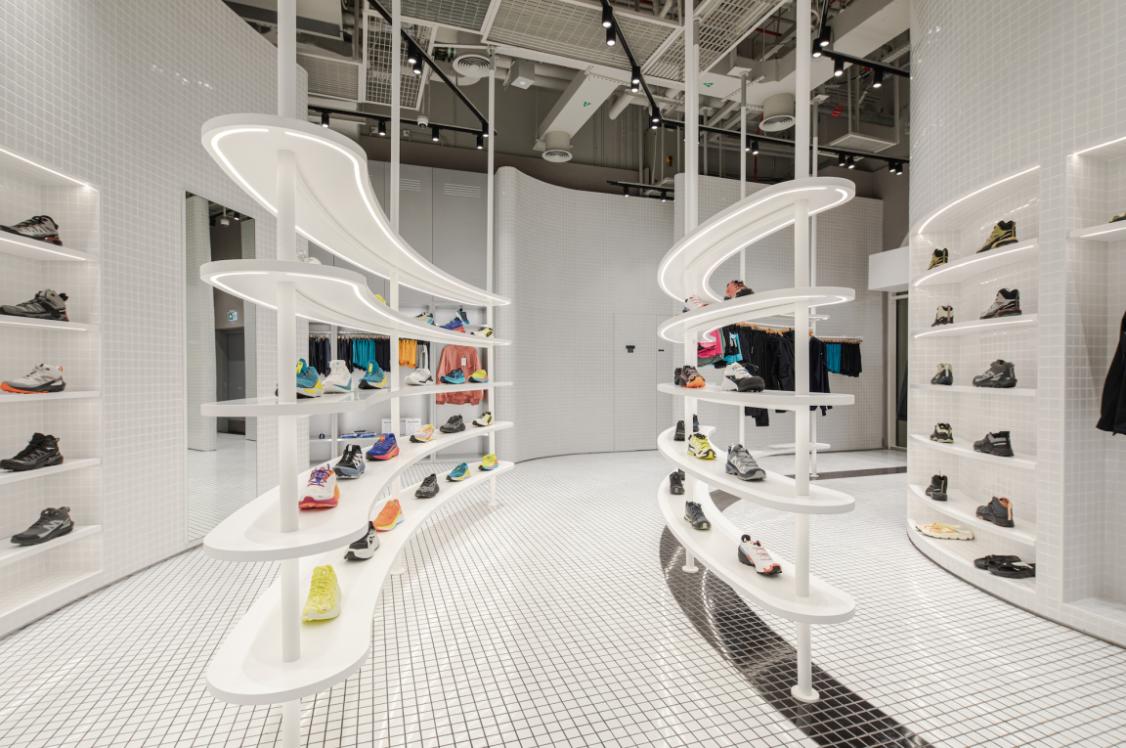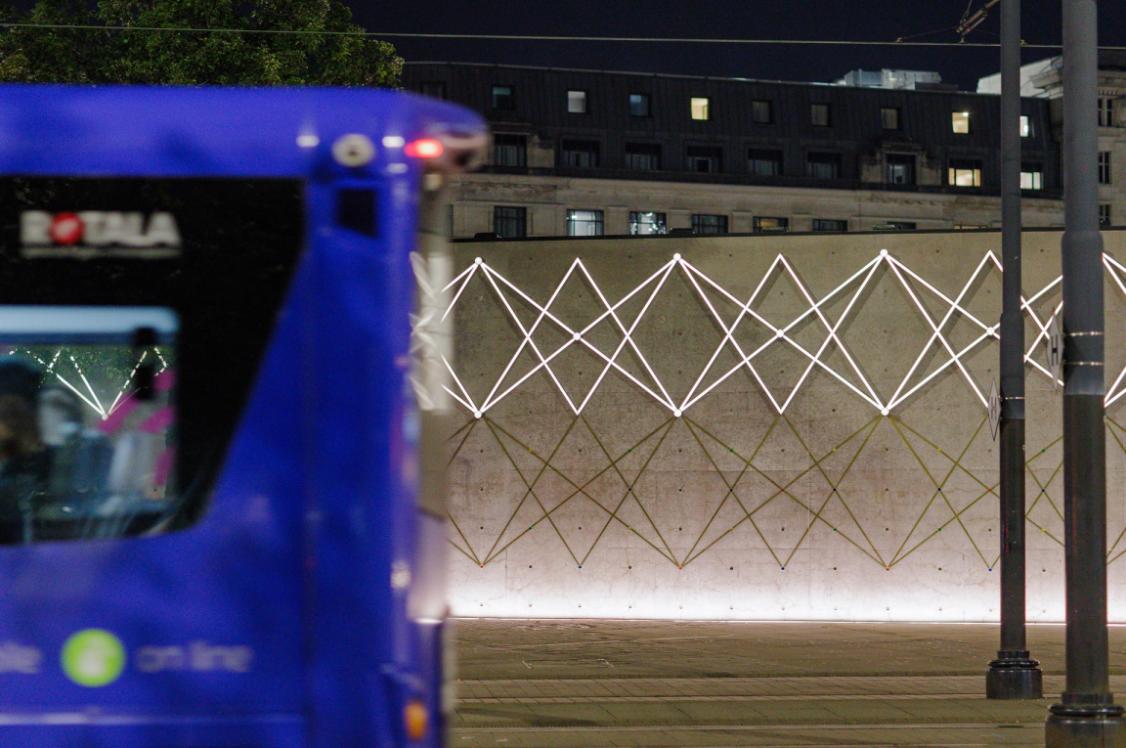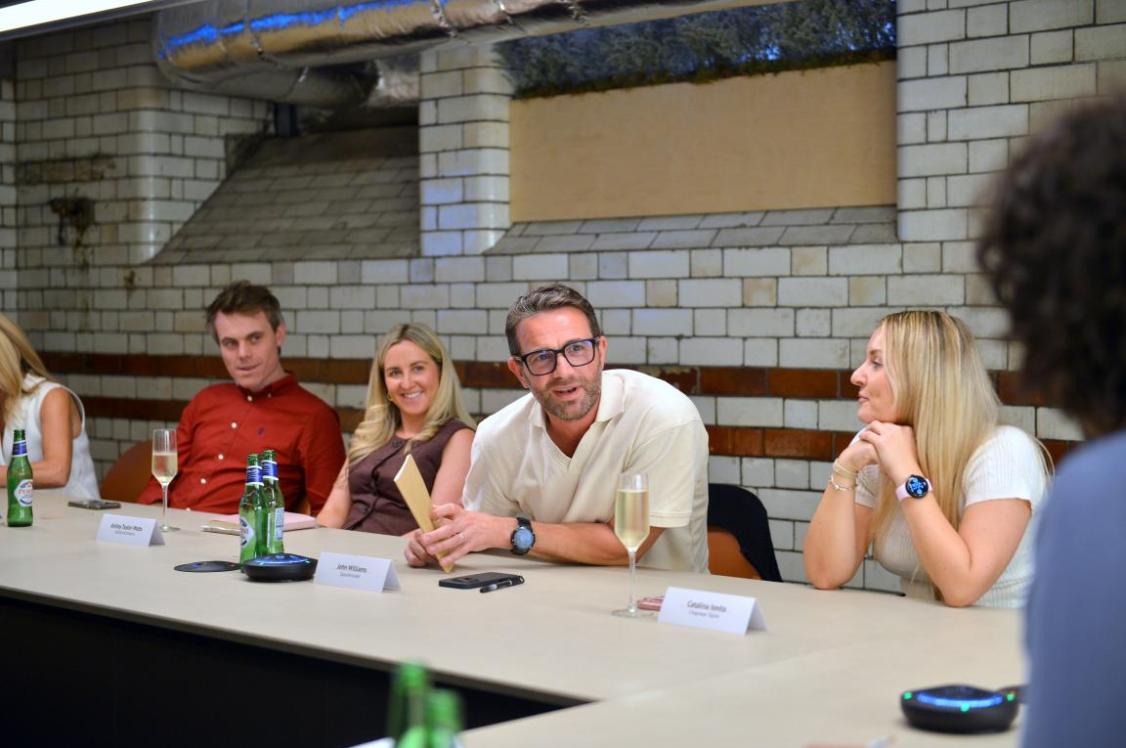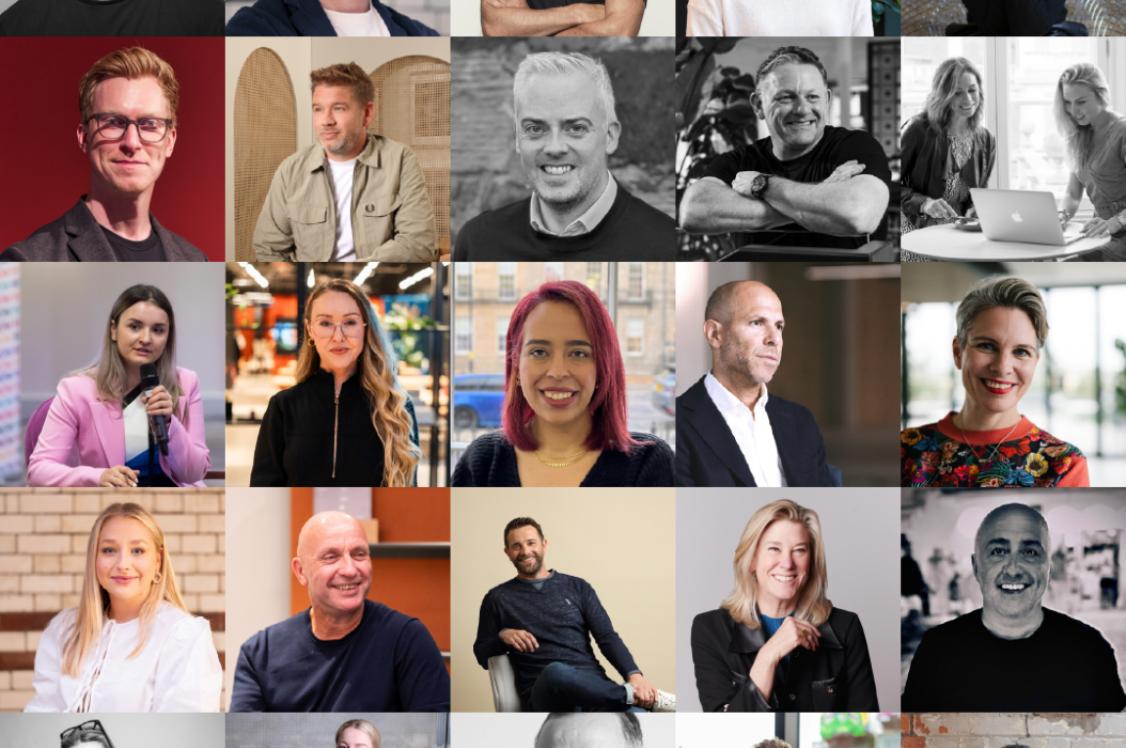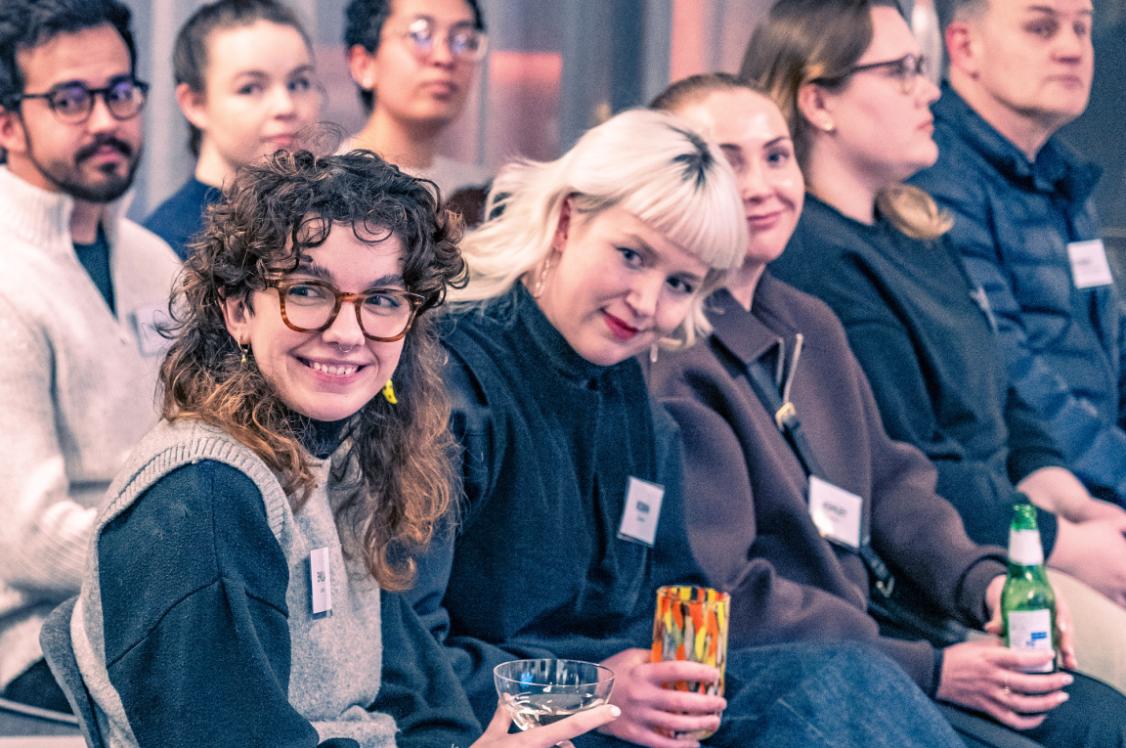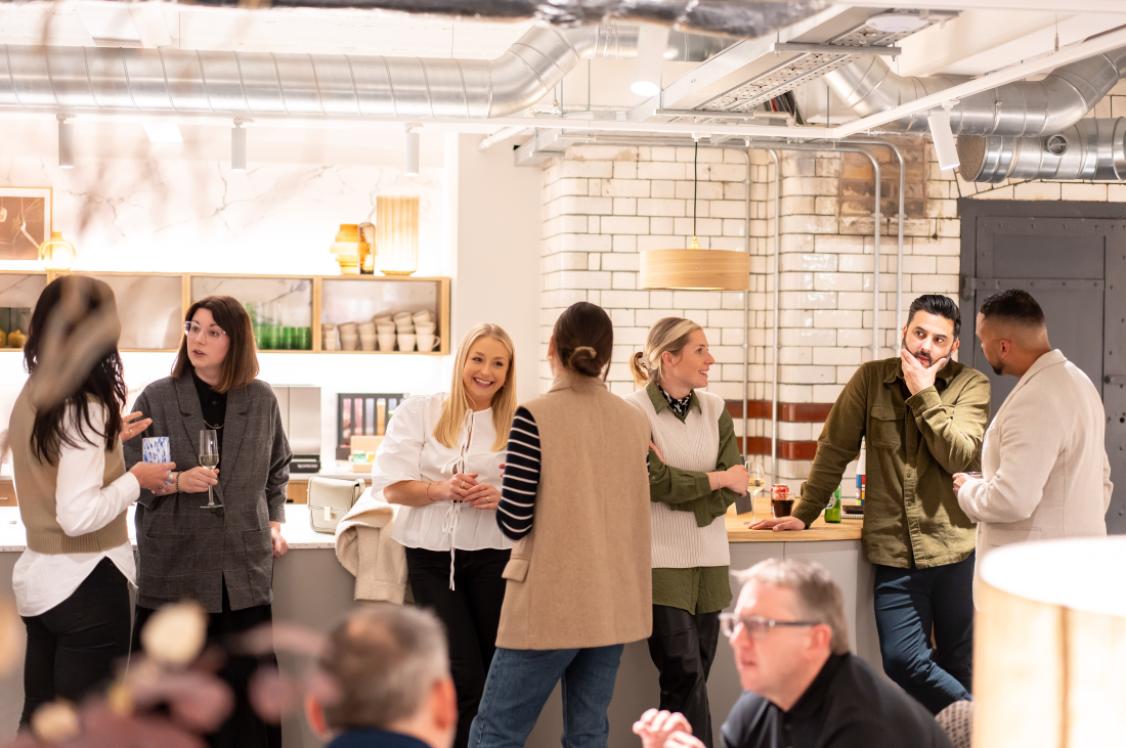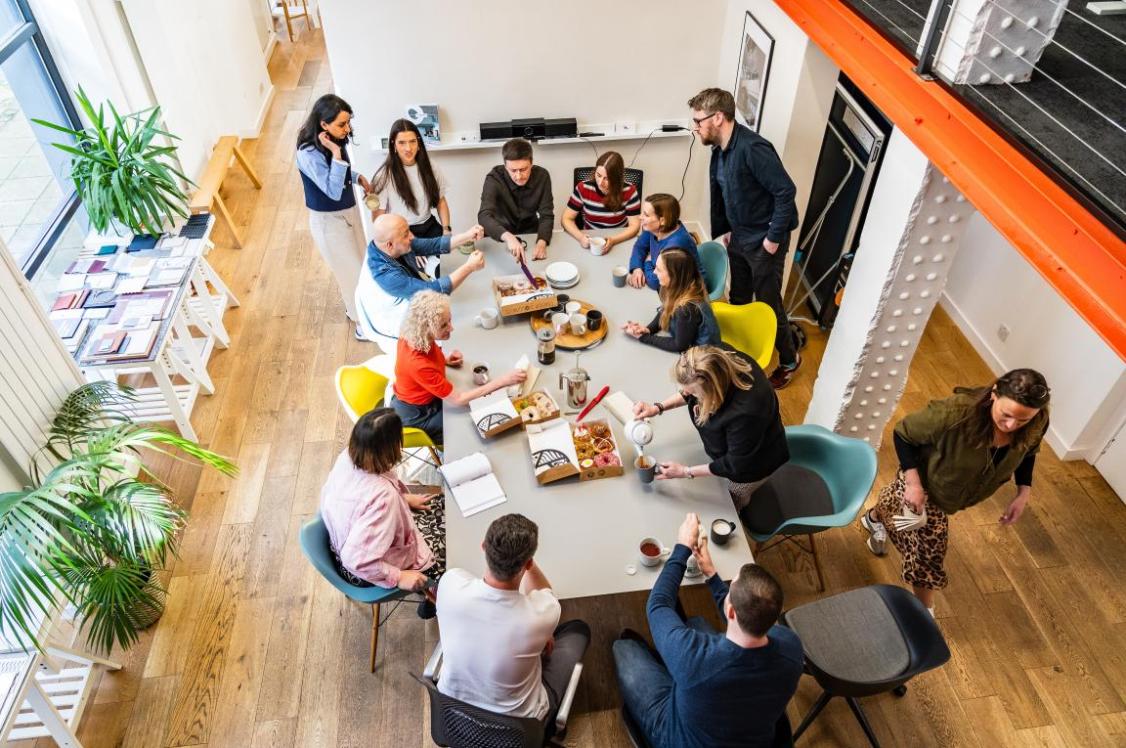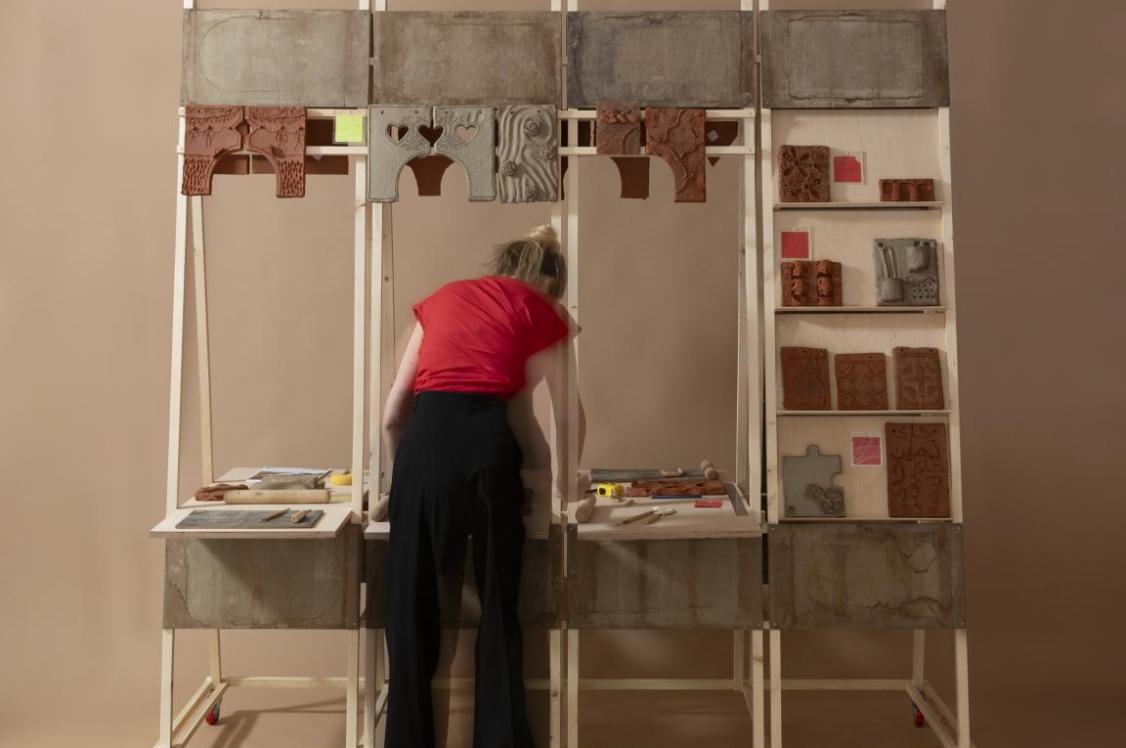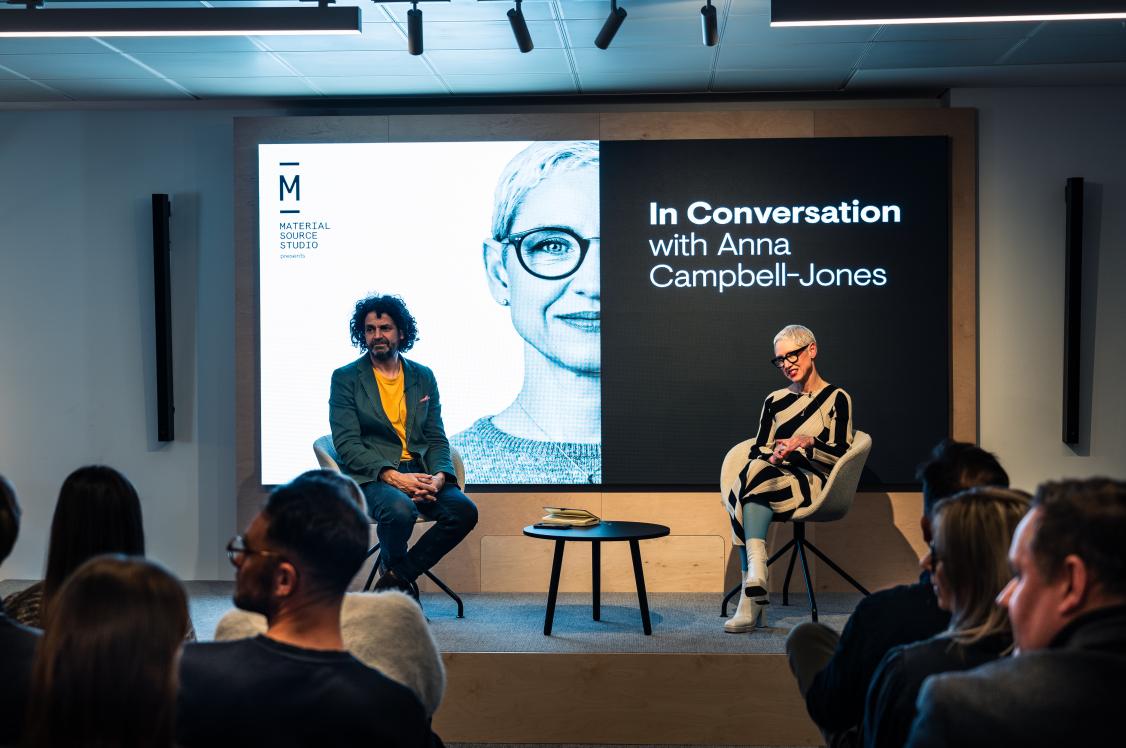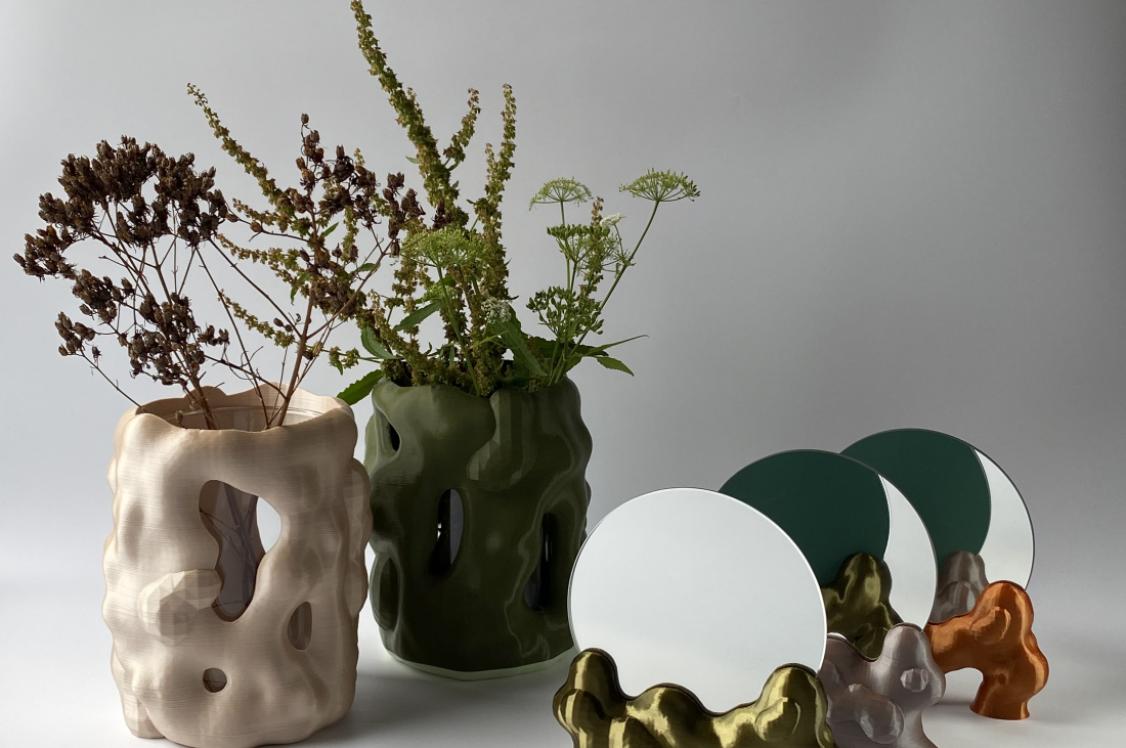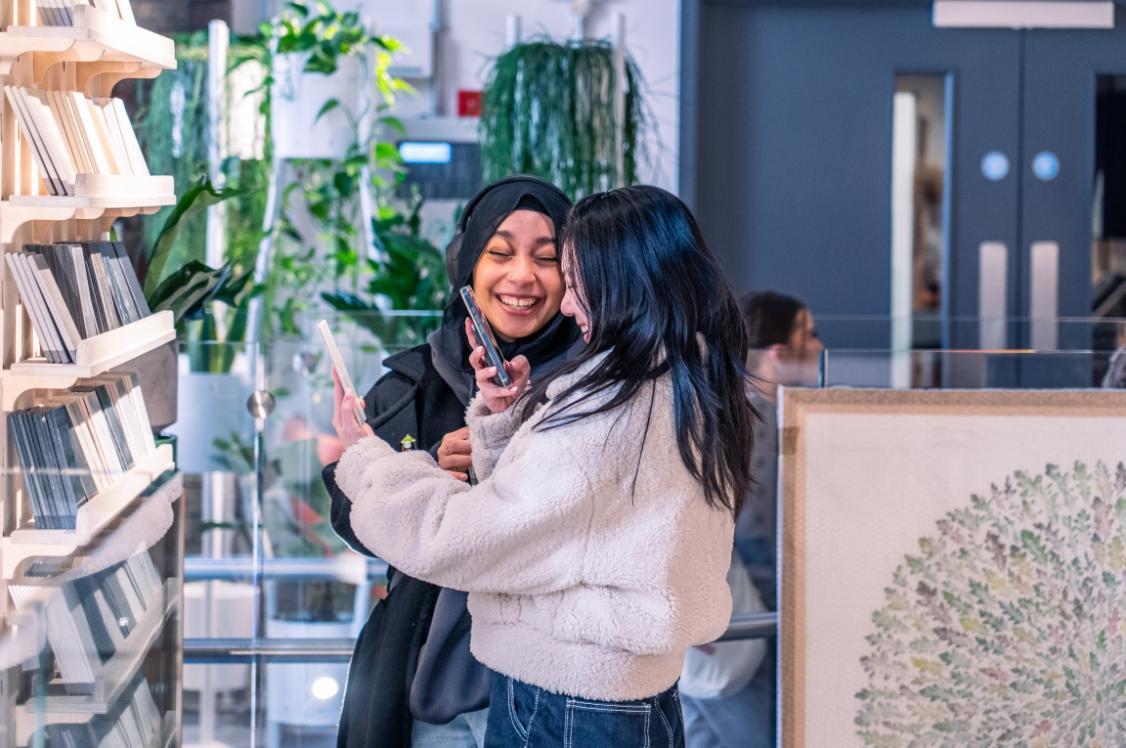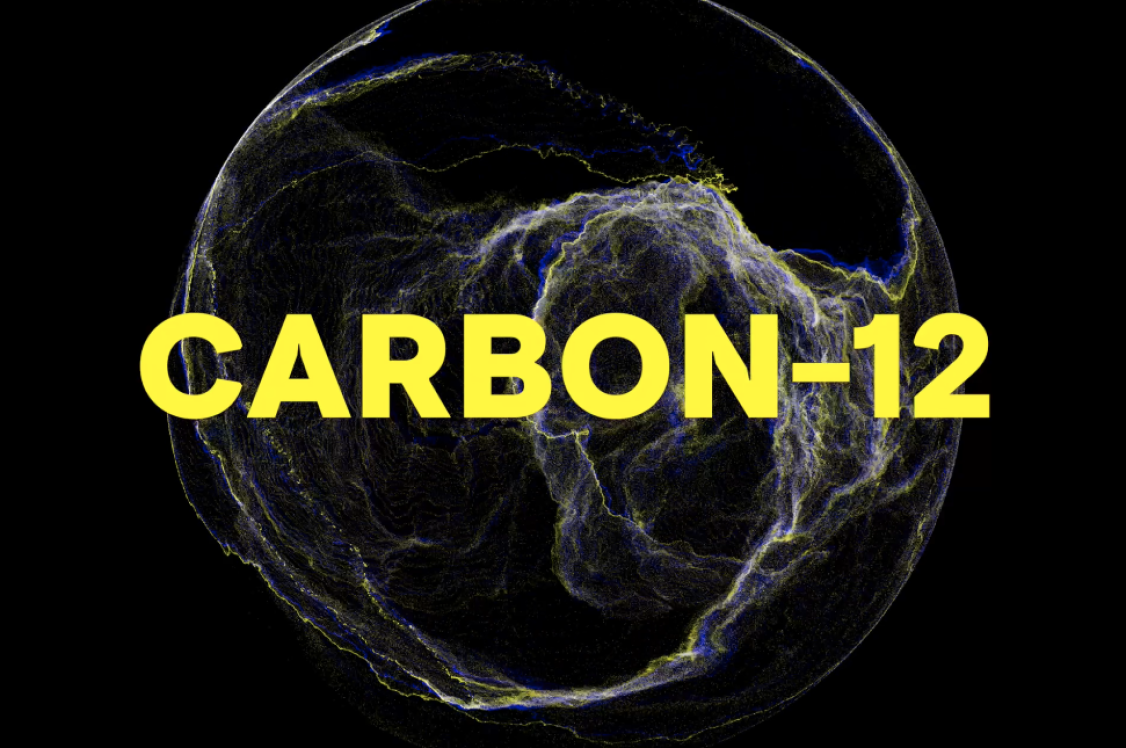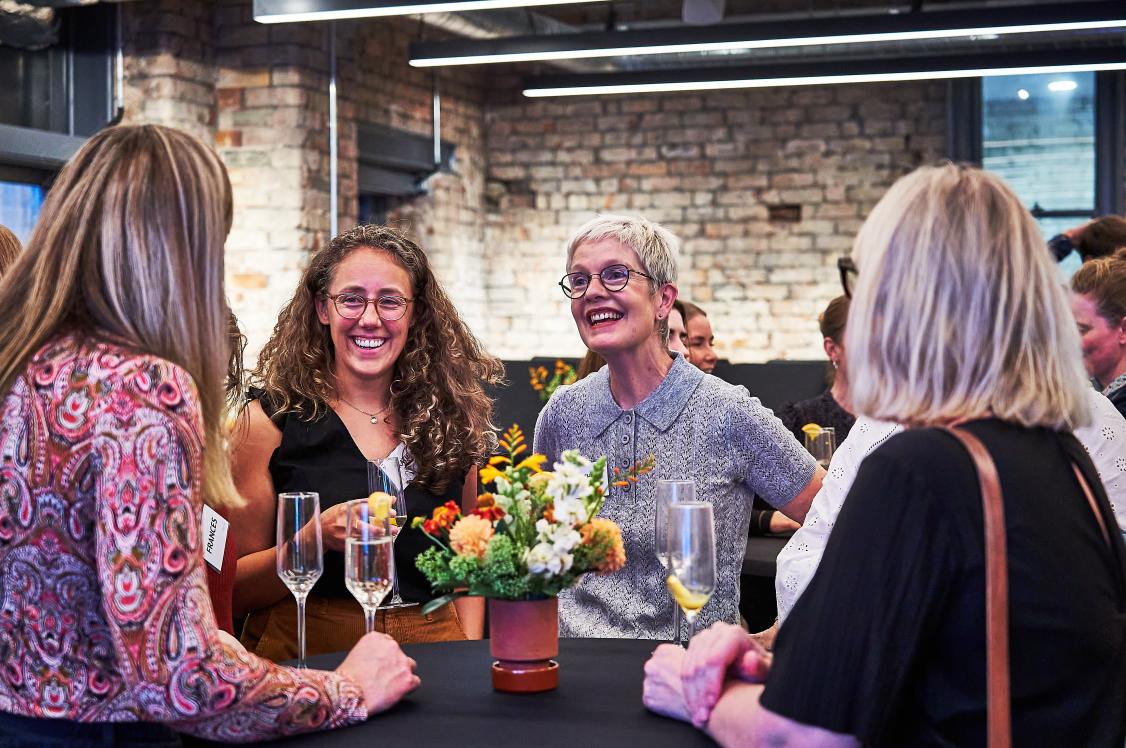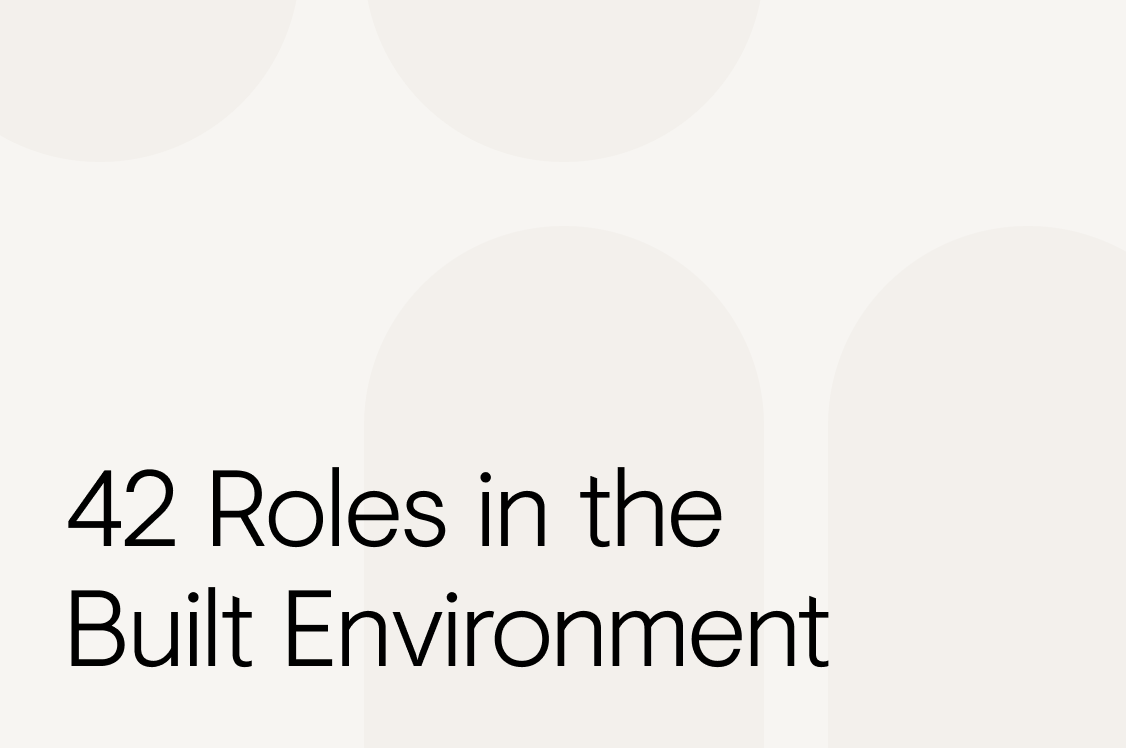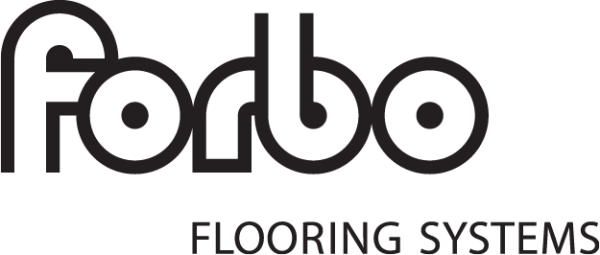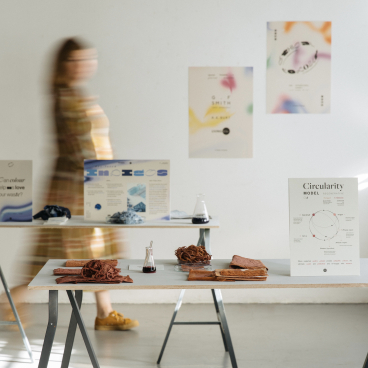Material Source Studio Glasgow Presents: Sustainability.
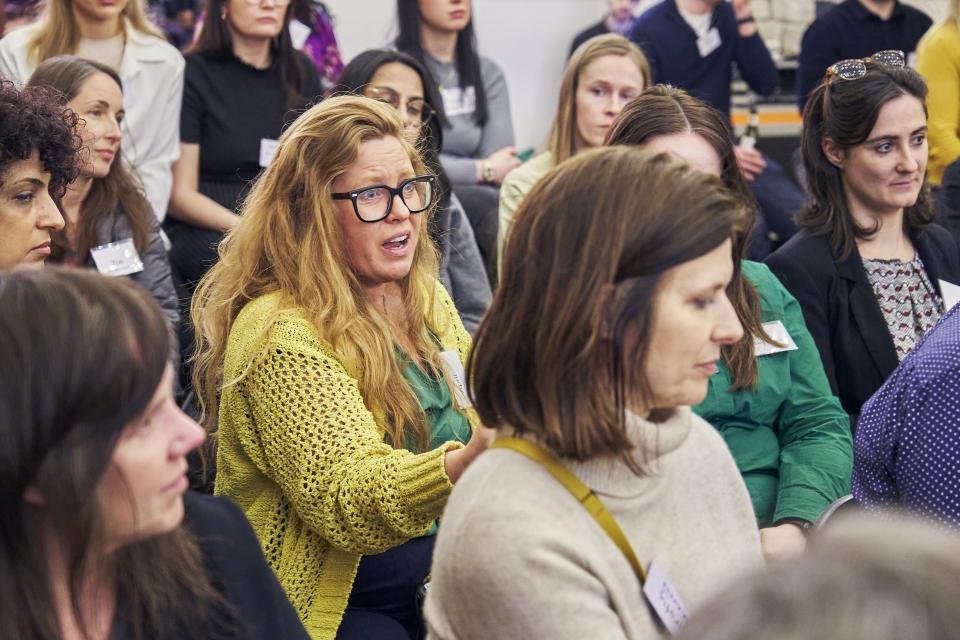
Credit: Tim Ainsworth
There couldn’t have been a more fitting venue for a thought-leading discussion on sustainability as we headed to the home of COP26 and Glasgow to debate this crucial topic.
Hosted by David Smalley, a packed house at The Haberdashery heard the views of our distinguished panel which comprised of Atelier Ten Director Peter Kerr, NatWest Senior Design Manager Hazel Houliston, and Glasgow City Council Manager Duncan Booker. Special thanks to all of them for sharing their deep knowledge of the issues raised, and also to our sponsors for the evening Crown Paints Crosswater, and Forbo.
Following the pattern of our recent sustainability seminar in Manchester, we built the discussion around three key themes. Firstly, confusion, and how firms can avoid becoming mired in confusion when it comes to sustainability targets and metrics. Secondly, what action they need to be taking right now to help avert the climate crisis. And finally, the importance of trust and collaboration to achieve emissions reductions.
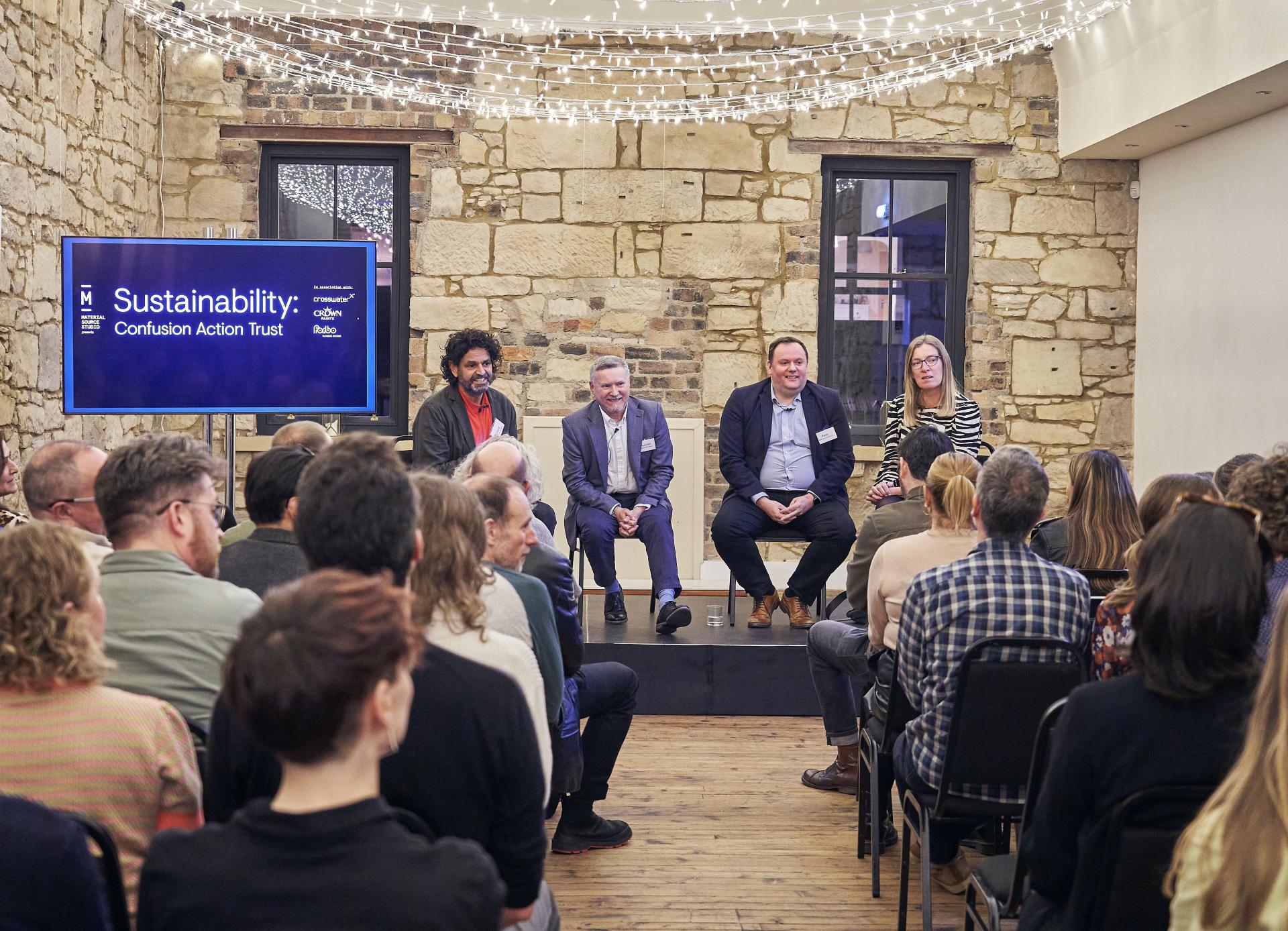
Credit: Tim Ainsworth
Environmental challenge
David began by asking the panel to share the one thing that regularly caused them annoyance in terms of the environment, and what they would do about it.
For Hazel it was waste both in the personal and professional context. “In your personal life it’s the waste you see with all the excess packaging in supermarkets and the fact that there is nothing you can do about that. In your professional life and the design world, it’s the way that you see end materials and products come to site and the way that they are packaged.”
She said one of the things that NatWest does to counter this is to build into tenders an expectation from contractors in terms of minimum sustainability standards. “The moment you do that it then filters down and becomes the norm. We have also partnered with the University of Edinburgh to develop a sustainability programme that all our colleagues can go through. On behalf of NatWest I want to see what we can do to make our office environments as sustainable as possible from specification right through to end design.”
For Peter it was about ‘chasing the ball’. “What I mean by that is that all design seems to be driven towards getting badges rather than looking holistically at climate change and carbon reduction in buildings. My point is that getting some badges can have inadvertent consequences. Take insulation. If you start to analyse the production of insulation you actually find you are doing worse things to the environment because of the energy it takes to make. That said, there are some benchmarks that are quite good so it is about looking at everything together and understanding the impact every decision you make has on climate change and the environment.”
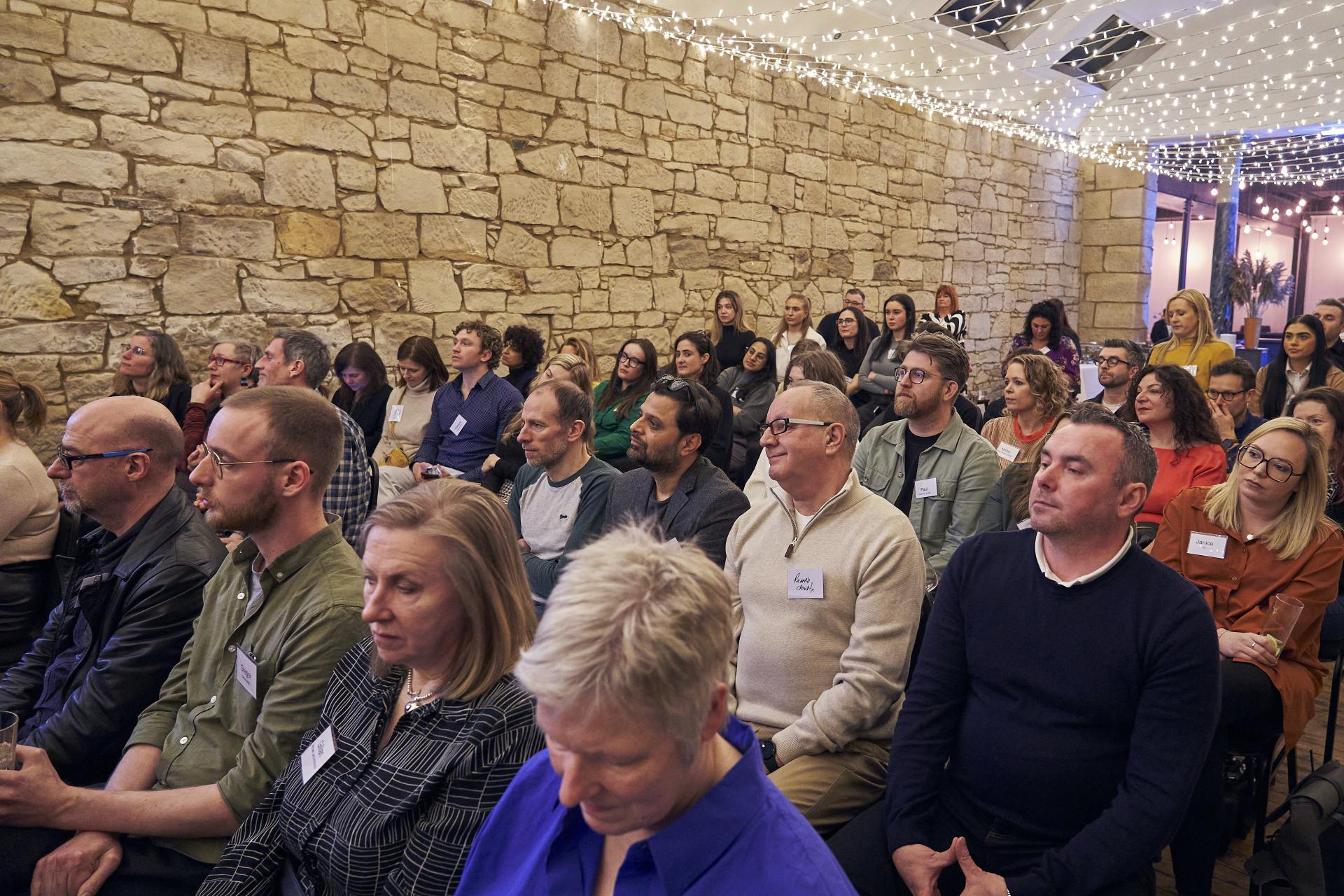
Credit: Tim Ainsworth
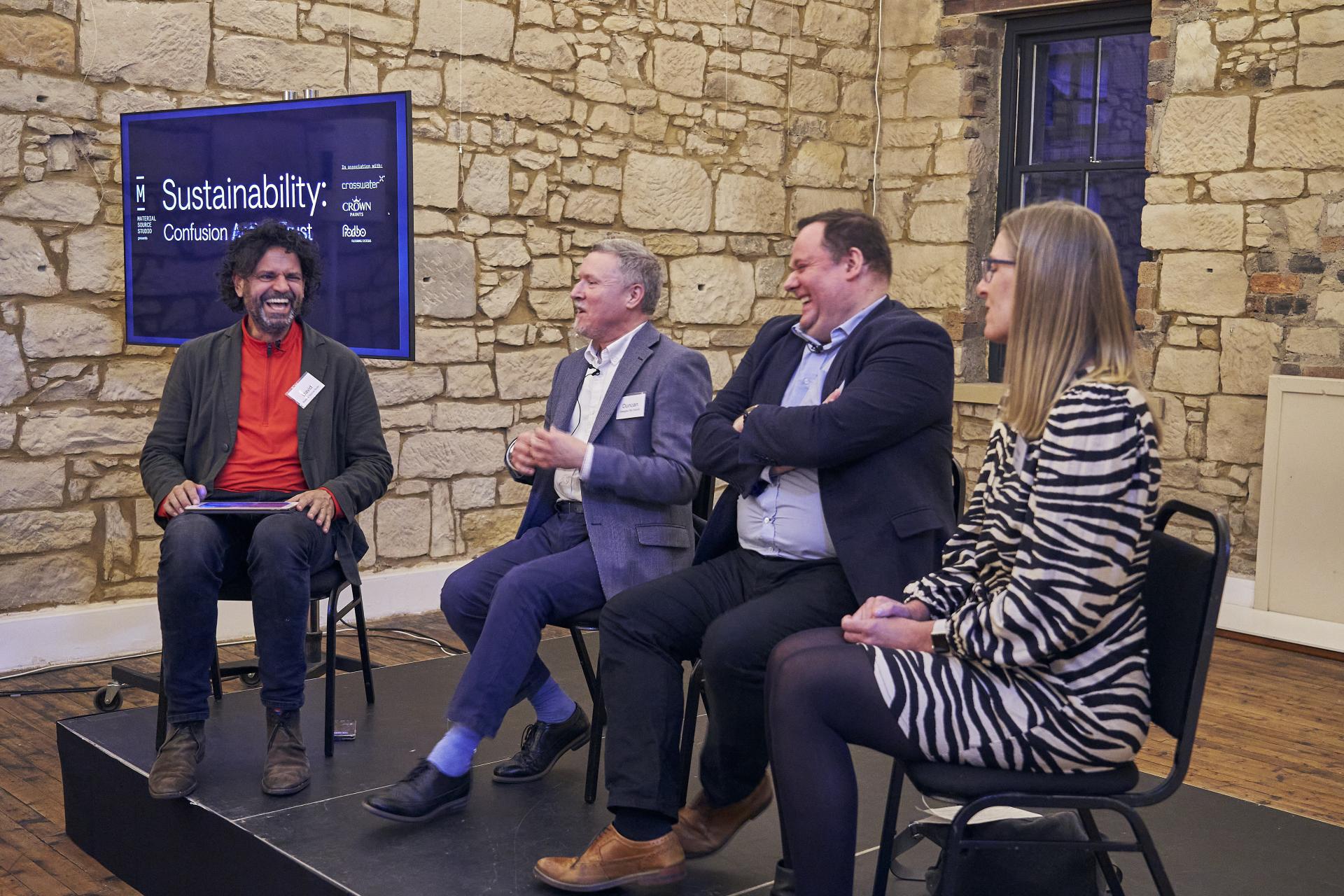
Credit: Tim Ainsworth
Agency
In answer to David’s initial question, Duncan said it was the way that climate change drains our sense of agency, be it as individuals, companies or communities, or even public sector institutions.
“There is a real need to give people back a sense of agency and control over decision-making. At root many of these questions are ones which our great grandparents would have understood. They are about power, democracy and who gets to choose the kind of future we want to live. If we return that to people in both small and large ways, we can be much better equipped to deal with some of the frustrating challenges we all find. In the design world some of that comes together in the concept of placemaking, good places working with and for people where some solutions can be found.”
David asked Duncan how we can move the dial on this, given that wider trust in politics is probably at an all-time low?
“Trust in institutions in the western world is at a low point, there is no doubt about that,” conceded Duncan. “But we need leadership. My reflection from COP26 in particular was that empowered city mayors are in many ways part of the solution because they have a democratic mandate, they have a convening role to bring together sectors from academia to businesses to communities. That kind of approach is vital.
“Building trust depends upon delivering and doing the things that people want. Cleaner and safer streets, fixing the potholes, starting local and with the details that annoy people and confront them each day, and then working up to grand policy. One of the problems is that we tend to issue the grand policy documents and forget about the importance of the smaller issues. If that level of trust can be regained then there is a real sense in which partnerships can be mobilised and become meaningful.”
Upskilling
David then moved the debate on with a question from the audience and specifically from a manager who had recently been asked by his employer to lead an environmental and sustainability group, and wanted advice from the panel.
Hazel said the key was upskilling. “I am a design manager and sustainability is my specialism and I have upskilled myself while NatWest has also developed a training programme for us. My advice would also be to talk to peers in the industry leading on the sustainability side, talk to manufacturers about what they are doing and give that information back to your team. Also ask your team directly, what do they want to know, what do they need to learn. That is what I did with my team.”
Peter said the main thing to understand is what you are trying to achieve from a sustainability perspective. “Ask yourself is it about my designs or is it about my business, because they are different things. However, as I mentioned before, one of the issues is that there is so much guidance, so it is a very difficult subject to self-educate yourself.”
Duncan added that Glasgow City Council was currently putting many of its senior managers through carbon literacy training. “It shouldn’t be all about one person having all this on their shoulders, it should be about mainstreaming a really significant policy and business agenda. I remember when we first worked on equality issues many years ago and it was just one officer stuck in a corner somewhere who was supposed to know everything. But equality should be related to everything you think about, and it is the same with the environment.”
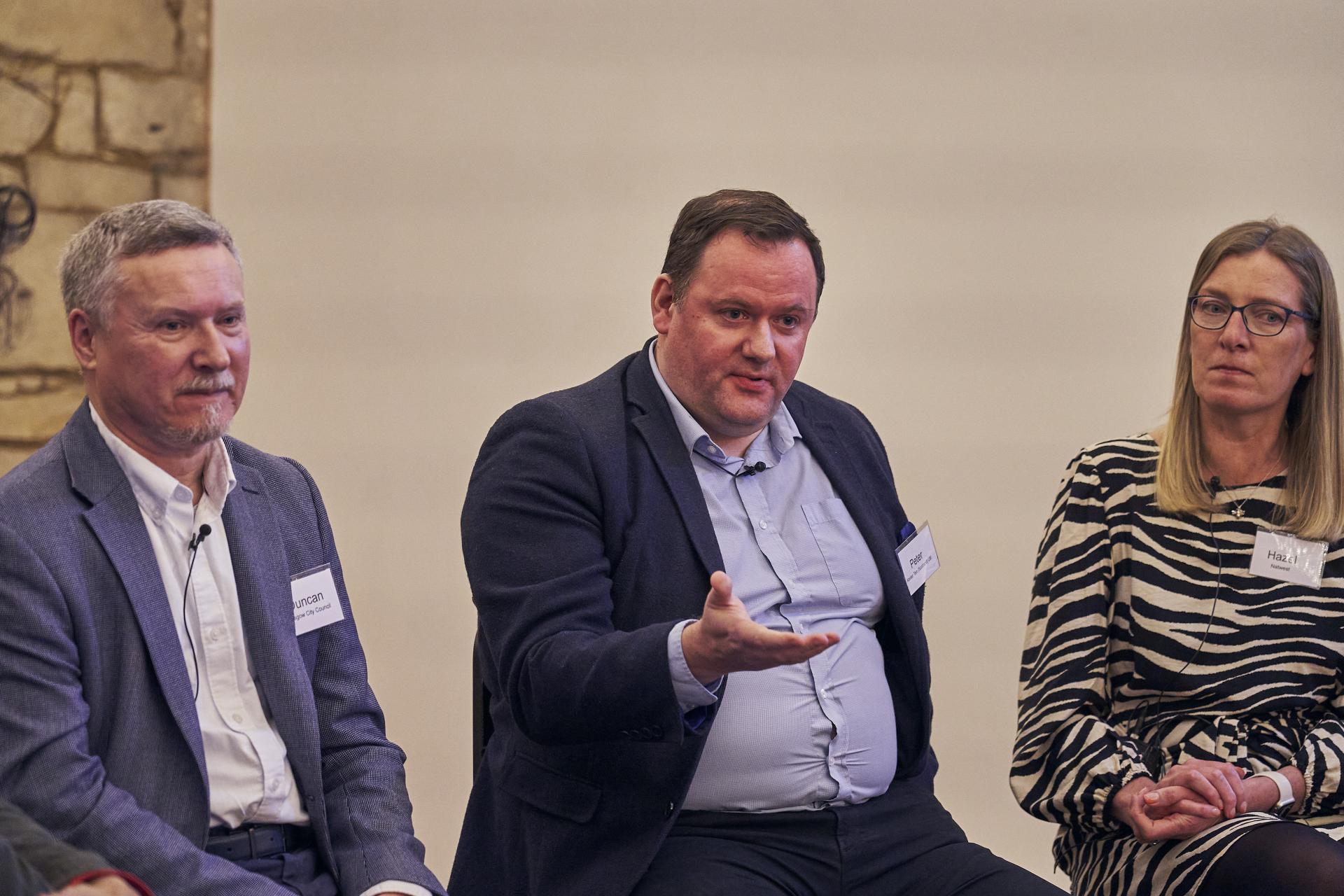
Credit: Tim Ainsworth
Sustainable communities
David then took another question from the audience, this time around what responsibility local and central government had in actually trying to create sustainable communities. The questioner was particularly concerned about continued low footfall in Glasgow city centre in the wake of the pandemic.
Duncan admitted that this remained a challenge. “It is quite clear that Glasgow seems to have had a lower footfall in terms of a return to the office and return to retail compared to other UK cities. In part that may be because some of the companies in Glasgow, particularly in international financial services, are allowing staff to work from home and SMEs don’t have that choice.”
In specific response to the question around sustainable communities, he added that building a circular economy and working closely with businesses was key, as was building collaboration and partnership. However, he added that governance arrangements are probably not well designed for the environmental challenges we face. “Innovation in governance and finance are just as important as innovation in technology.”
Incentives
There followed a wider debate about the extent to which there should be incentives to promote sustainability in design, and the fact that sustainable products and materials are more expensive. Peter couldn’t have given a starker reply.
Quite simply put if products are not sustainable, they are going to go the way of the dodo they will not exist in the future. - Peter Kerr
Duncan added that pension funds and the insurance sector were also looking to divest and remove fossil fuels from their investment portfolios. “Increasingly we will find that regulation from government and the work of bigger organisations and companies that control supply chains will drive this.” He added that some of these issues also related to how we look at lifetime investments from an accounting perspective.
Action
Having discussed the confusing landscape around sustainability, David turned the debate towards action, and jumped straight in by asking Duncan how Glasgow’s ambitious target of becoming a carbon neutral city by 2030 was going.
“As hosts of COP26 there was a real message that we put out to the world,” Duncan replied. “While nation states made pledges at COP, it is cities that are at the forefront of delivering a net zero future. Urban action and ambition will lead on this. In answer to your question, we have achieved a 50% reduction in carbon emissions from a 2006 base line in the city of Glasgow. But there is a sense in which we have plucked all the low-hanging fruit and that the hard work now really begins.”
Duncan said many of the challenges went back to his earlier point about governance and who gets to run things. “Take transport which is now the largest sector contributing to carbon emissions. But we don’t get to run buses. There are lots of questions around who runs things.”
How we can help
David concluded the debate by asking how people in this very room could move things on and help. “In front of us are people who already think green so in a sense we are talking to converted. But how much more can we use this group to help? Peter said one of the biggest issues was around behavioural change and the creative industry could help with that, communicating things in a common language that everyone understands, and helping everyone make small but significant changes.
Added Duncan: “The Glasgow Place Commission report last year also picked up on many of these issues, both the big strategy but also the more local issues and working with communities such as through housing associations. The whole issue of designers and architects working with the local authority to conceive a better future both in granular detail as well as bigger strategy is really important.”
David rounded off the evening by asking our panellists if they would like to share one simple hashtag piece of advice. For Hazel it was #think global, act local. “You might think small steps in your local area might not make a difference but every little counts,” she said. While for Peter it was #clean air, ongoing smoke.

Credit: Tim Ainsworth
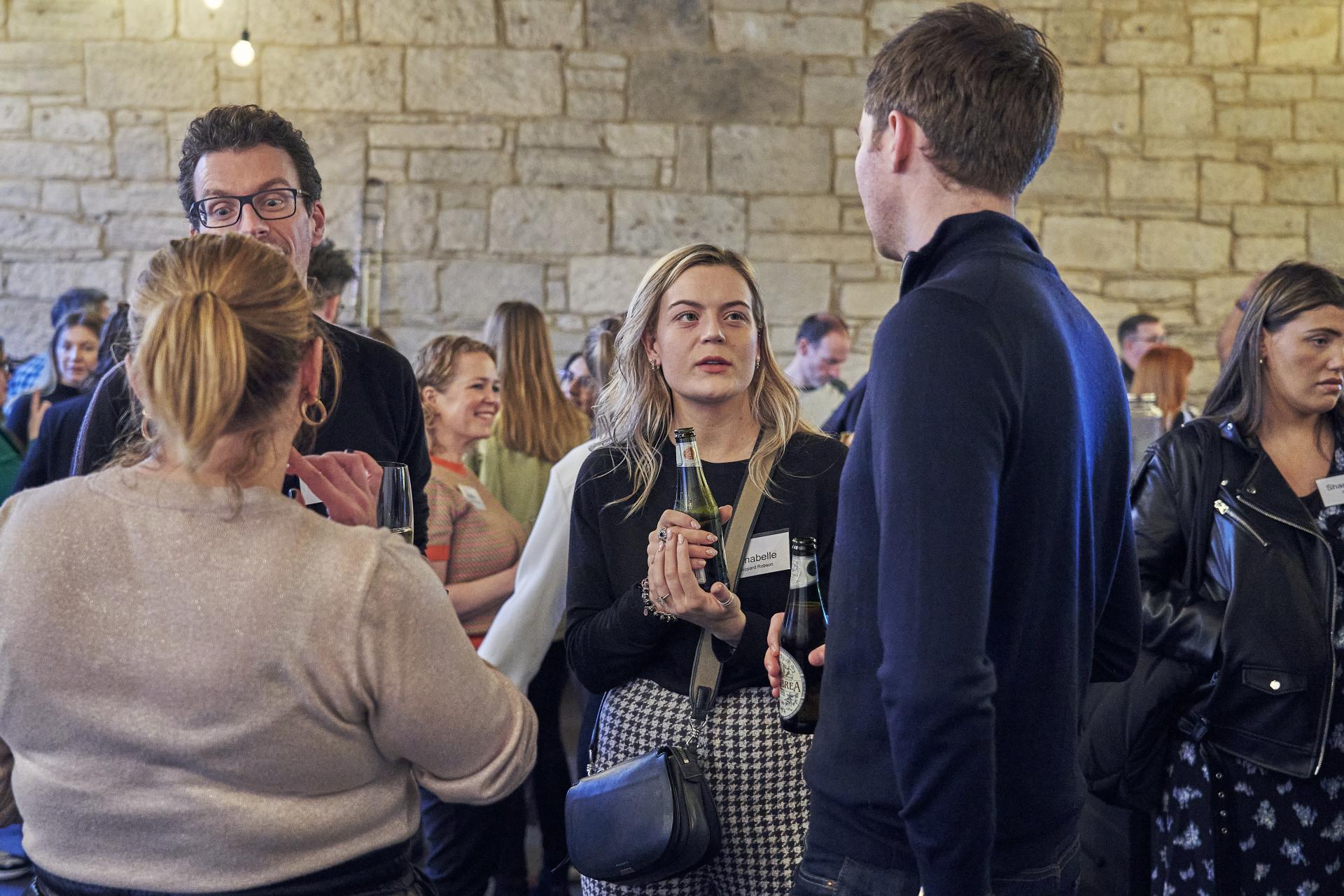
Credit: Tim Ainsworth
Key takeaways:
If products and materials are not sustainable, they will simply not exist in the future - they wont be specified.
A feeling of too much emphasis being put on specifying products with ‘badges’ rather than looking at actual carbon reduction within a building as a totality.
A common approach is missing and needs urgently developing on how products and materials are assessed and then rated on their sustainability credentials - lets clear the fog!
There is a need to think about sustainability in its entirety. We need to understand how every design decision one personally makes has an impact on the project and ultimately the environment.
We urgently need to give people and communities at a local level a better sense of agency and control in decision-making.
Personal behavioural changes can and will have a big impact on delivering sustainability. If we all do small things individually then that can have a massive impact collectively.



